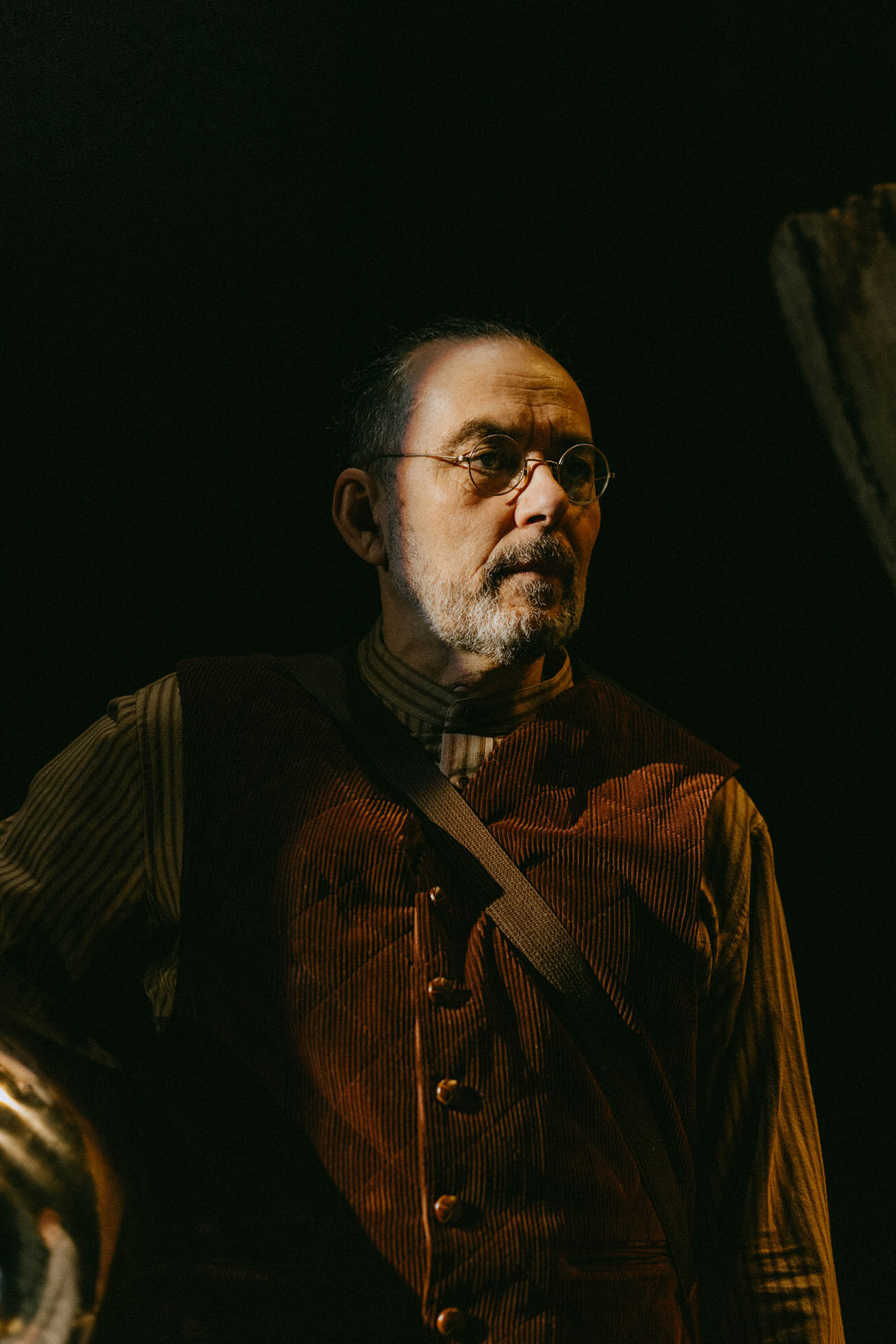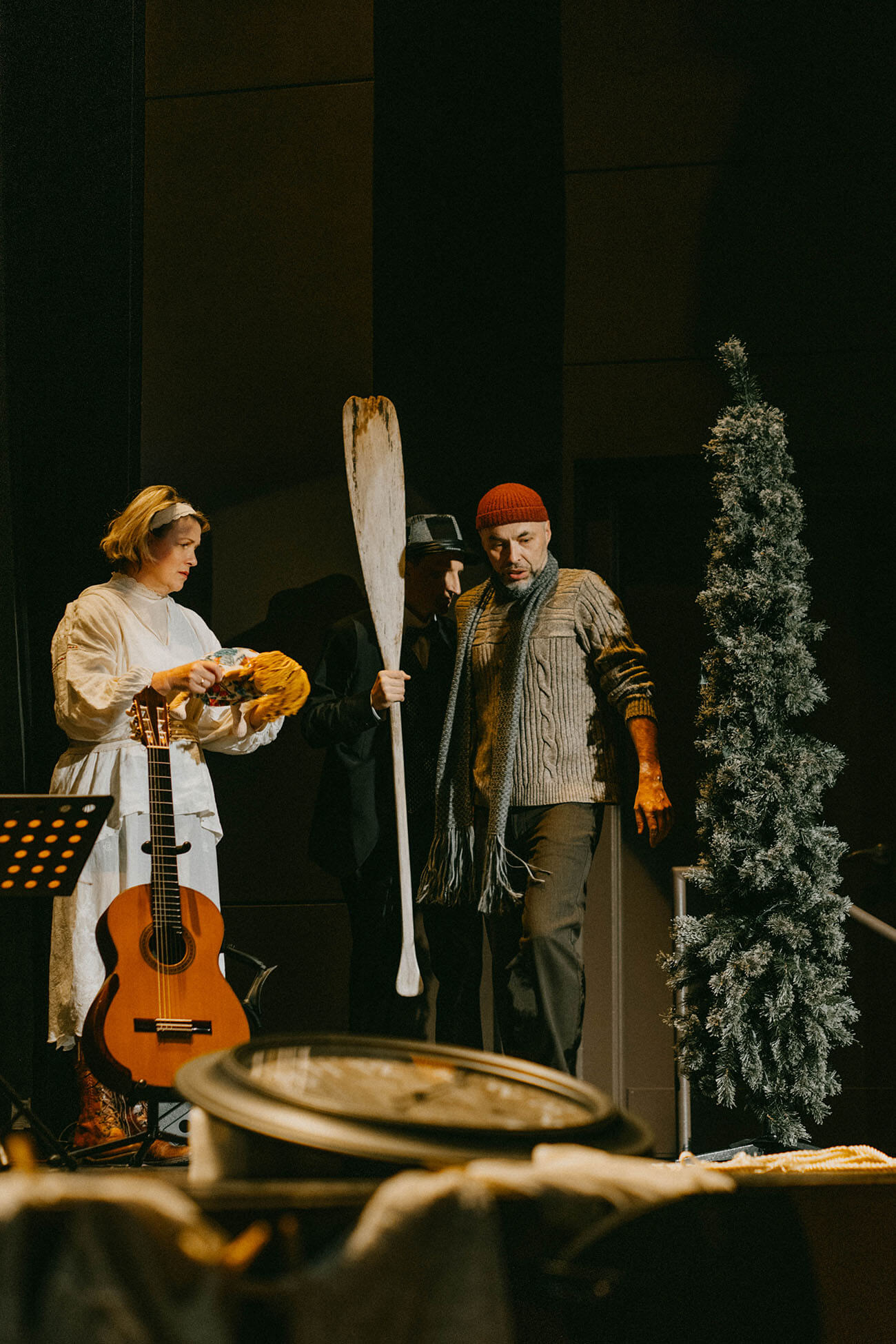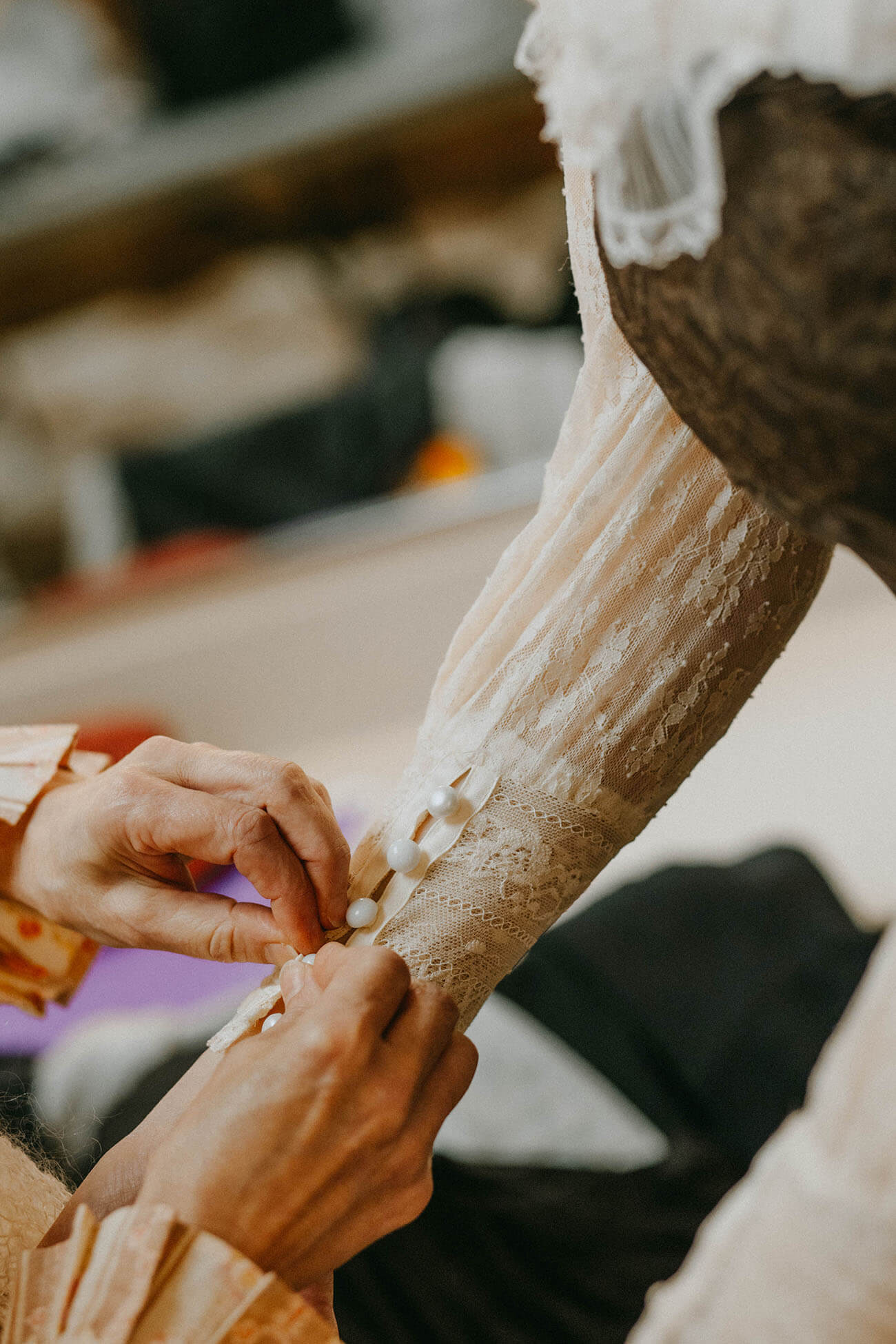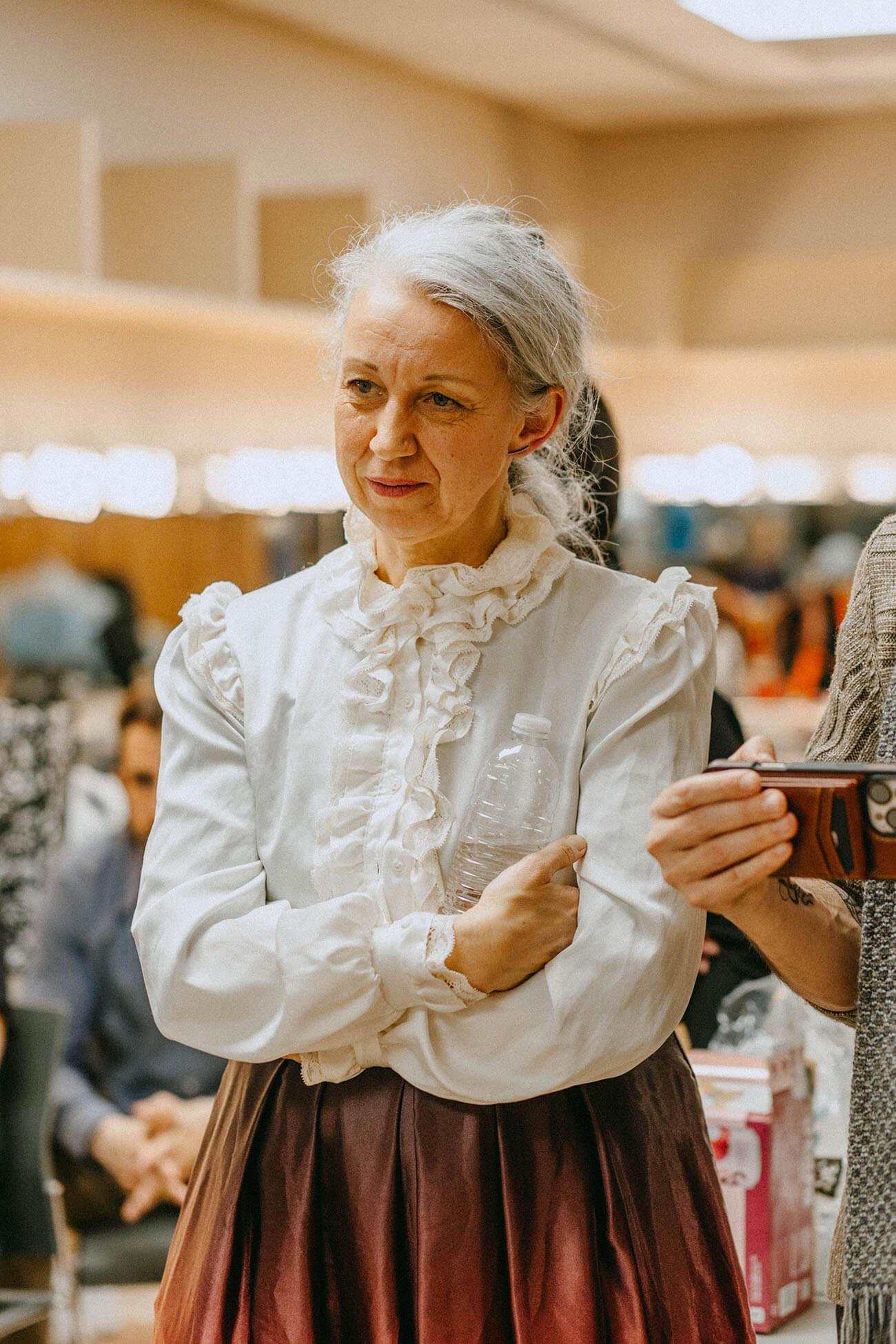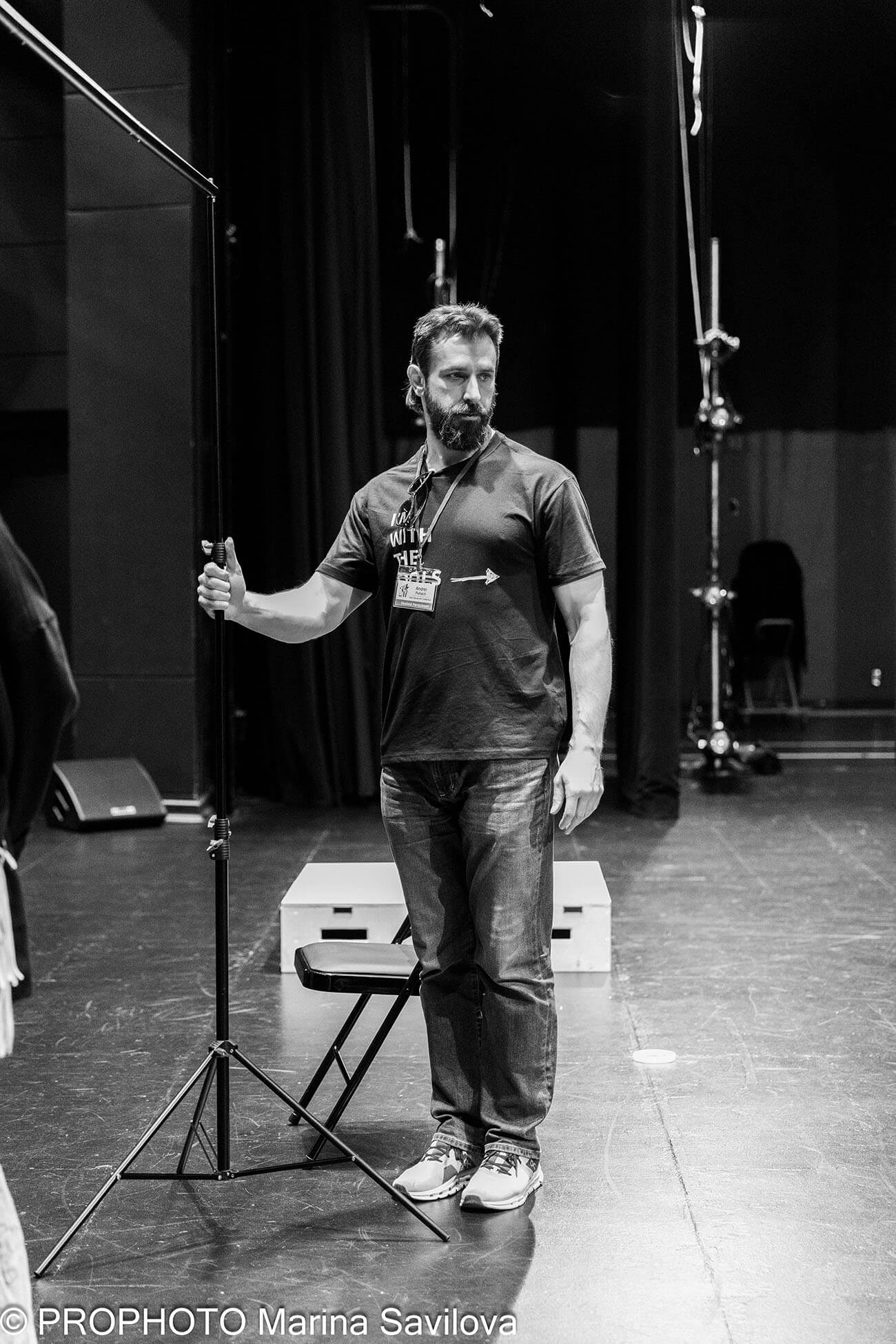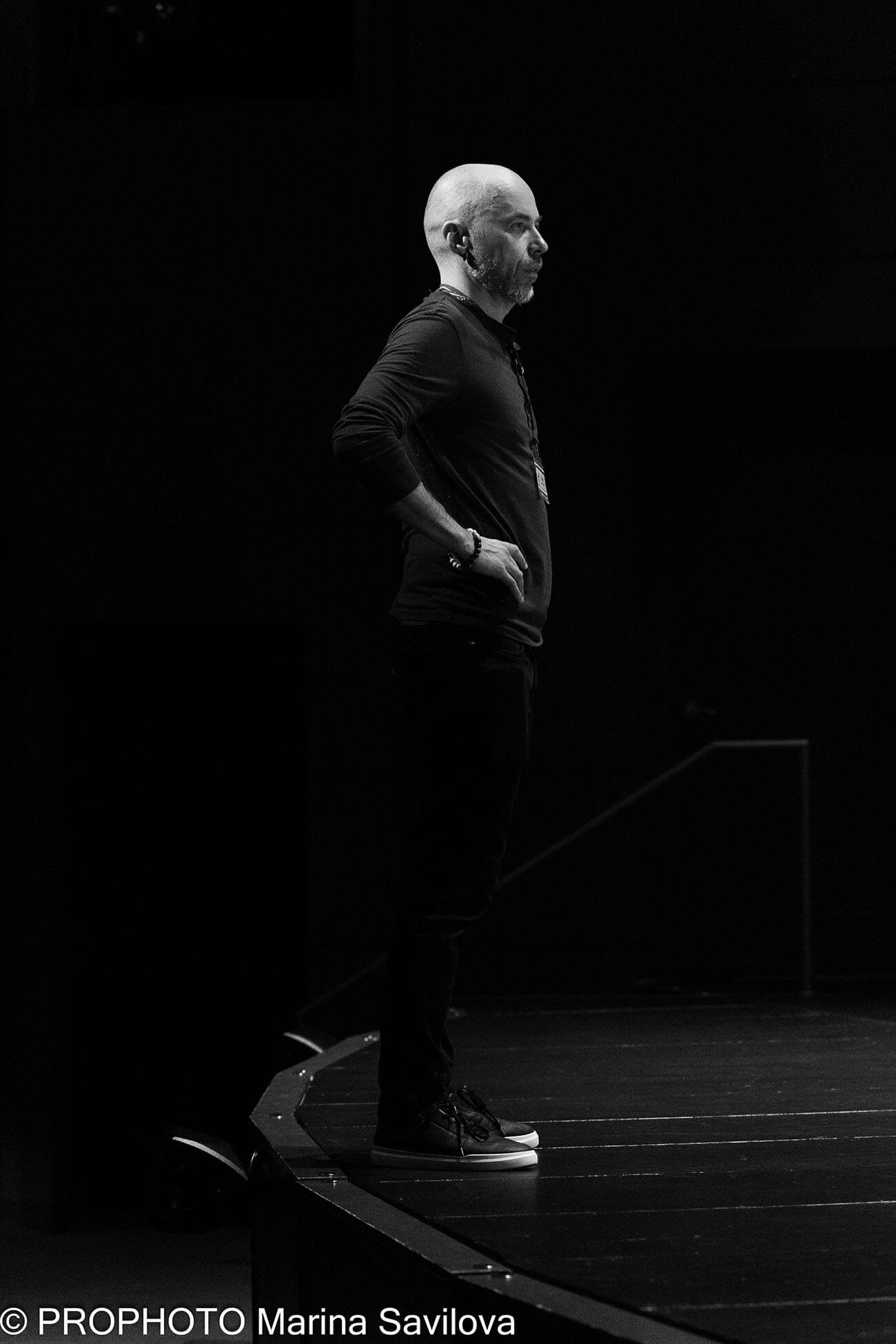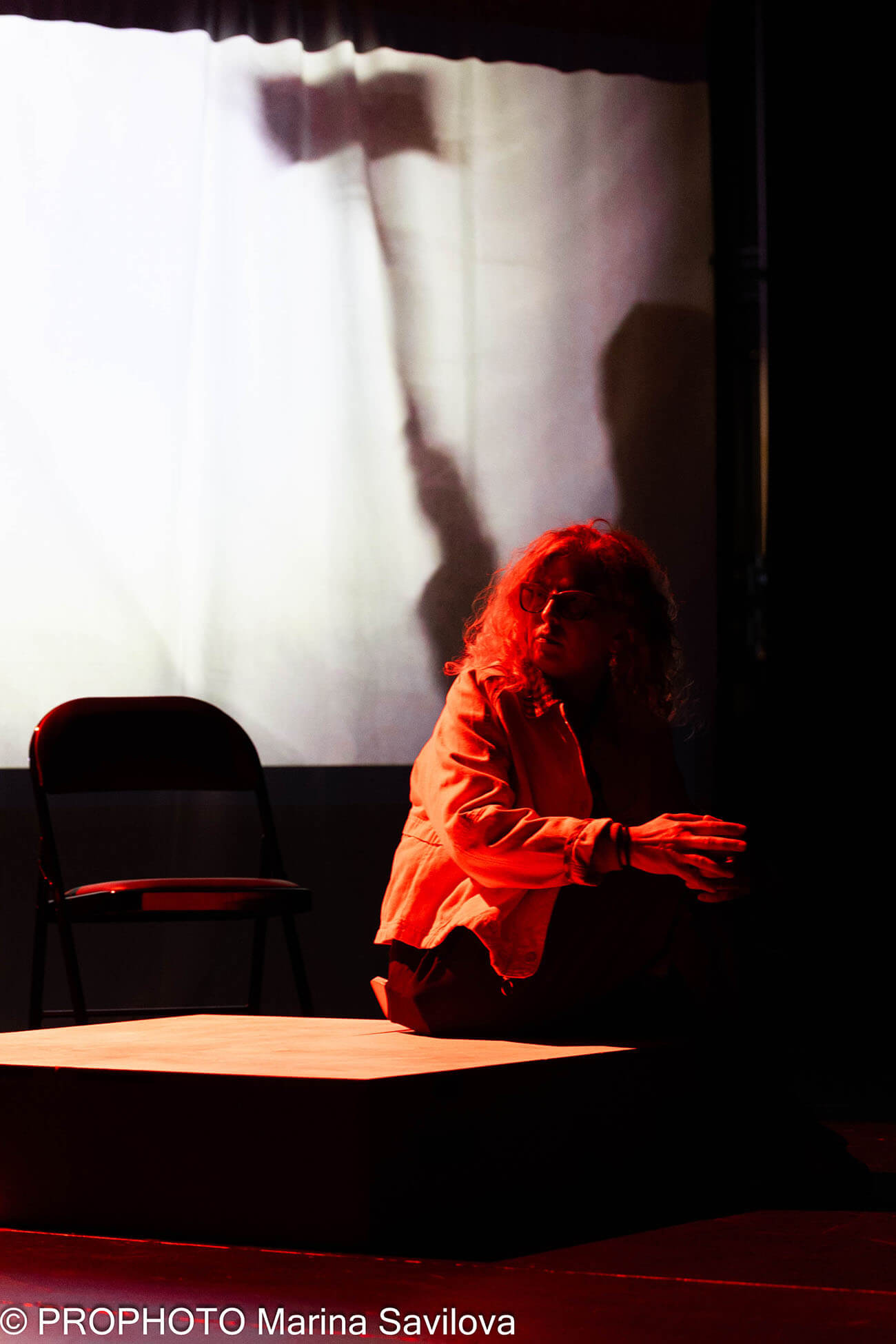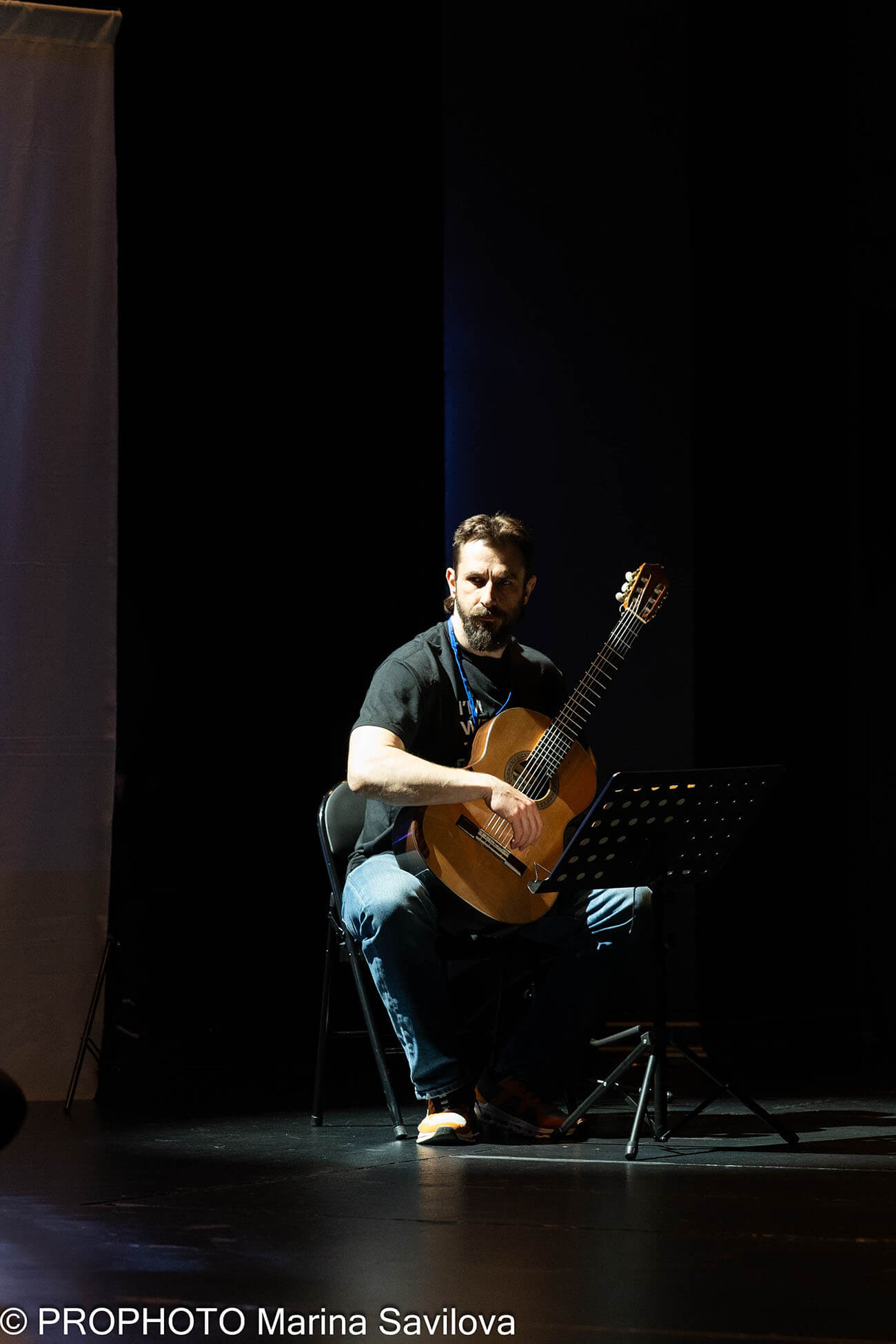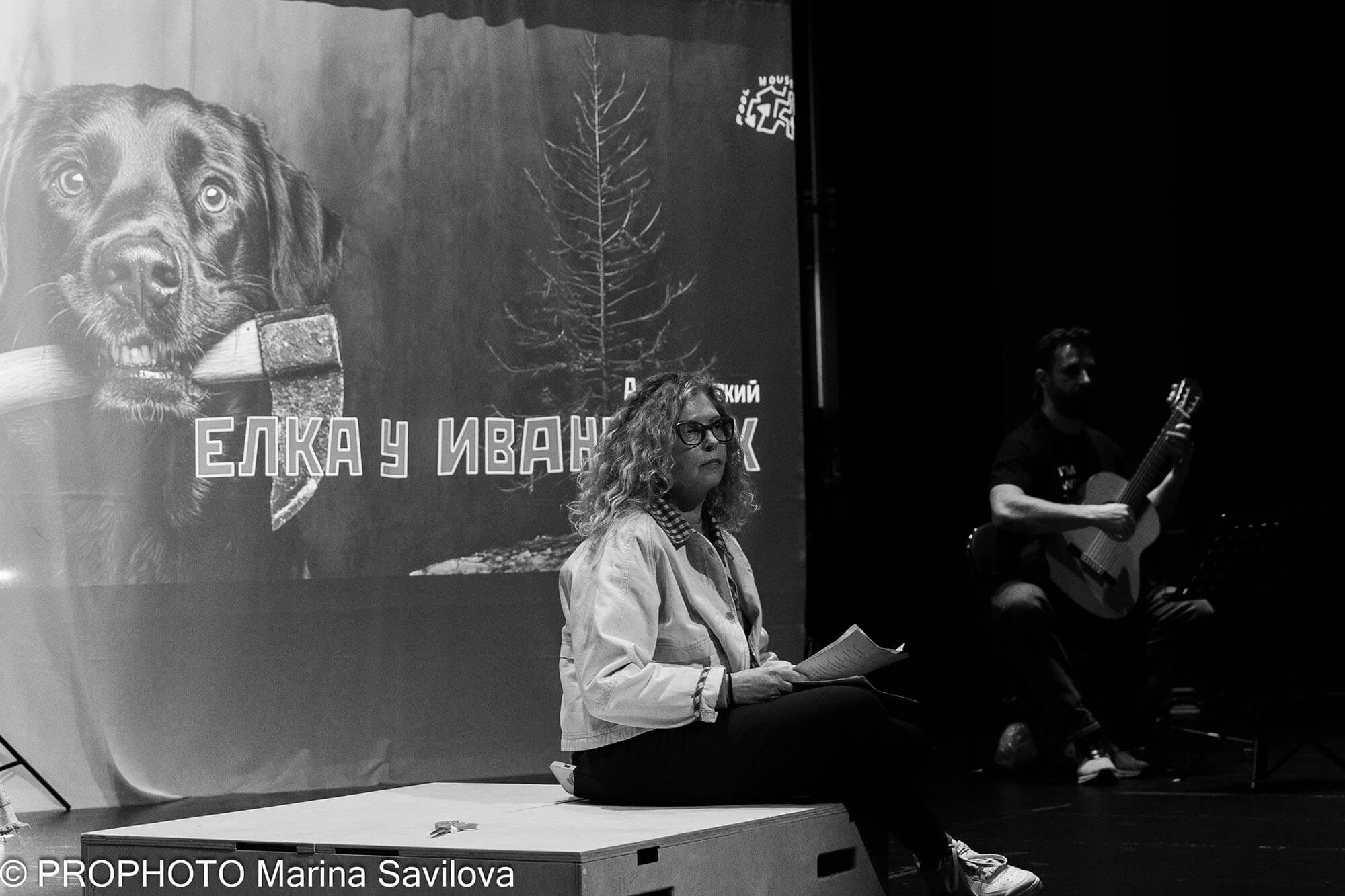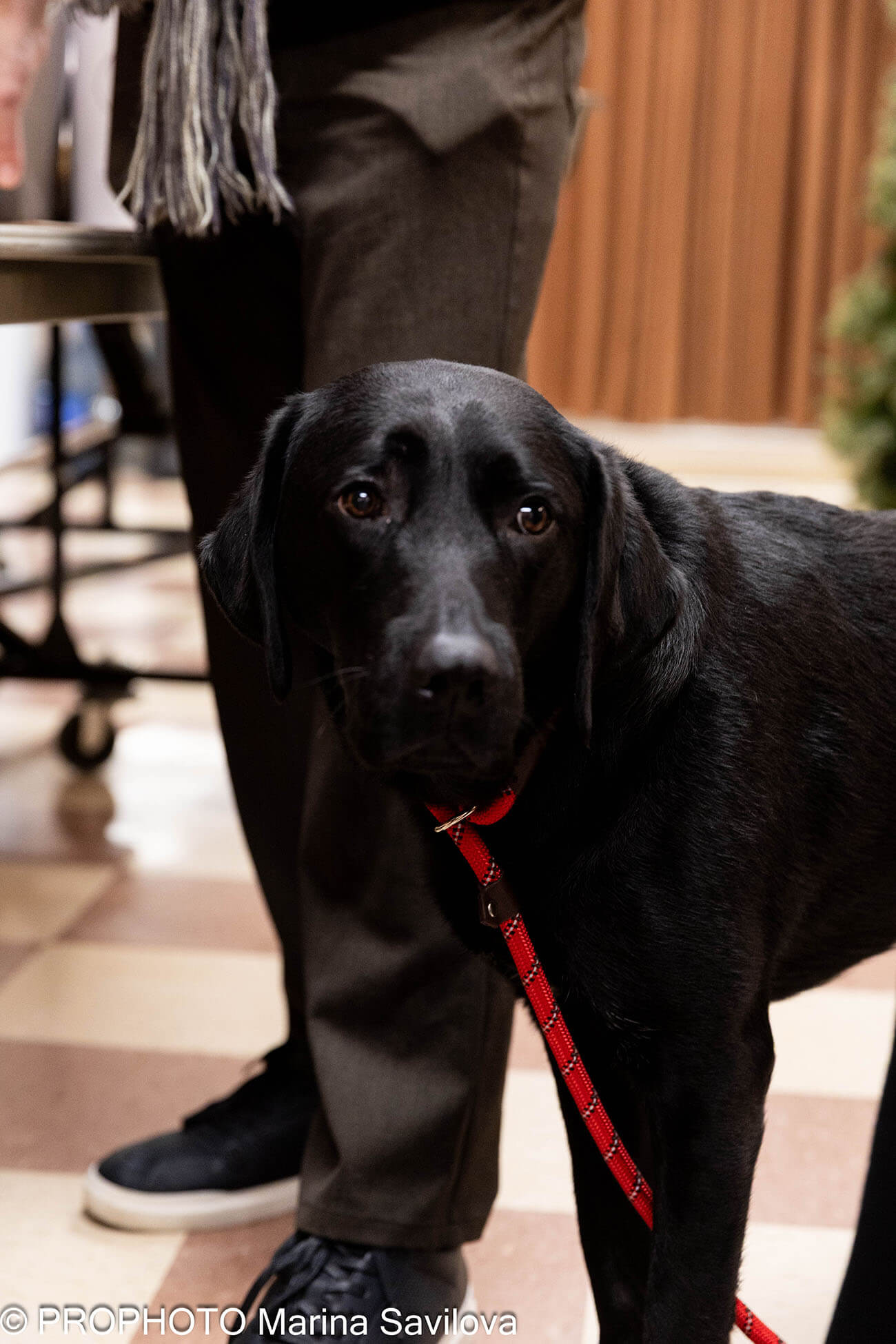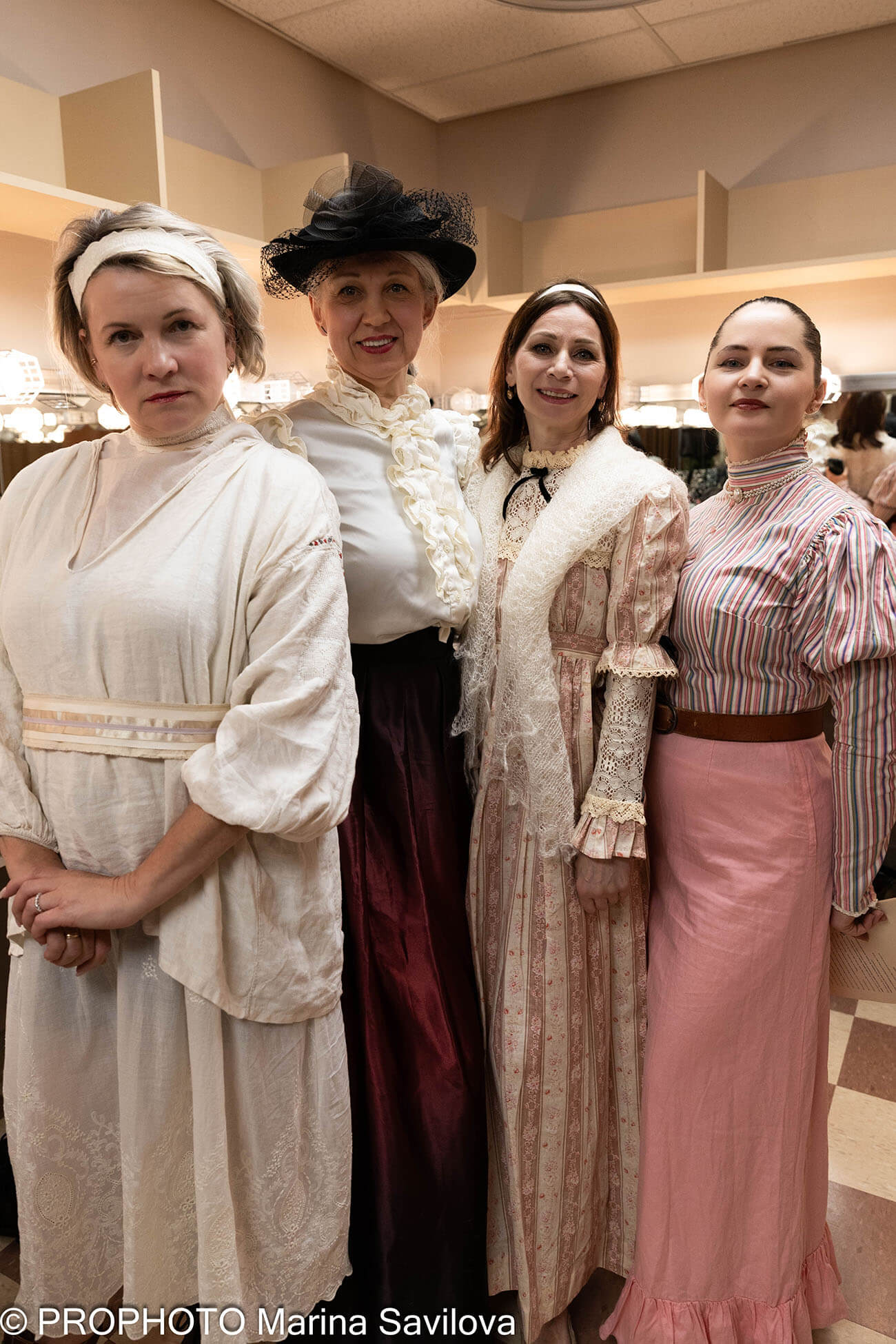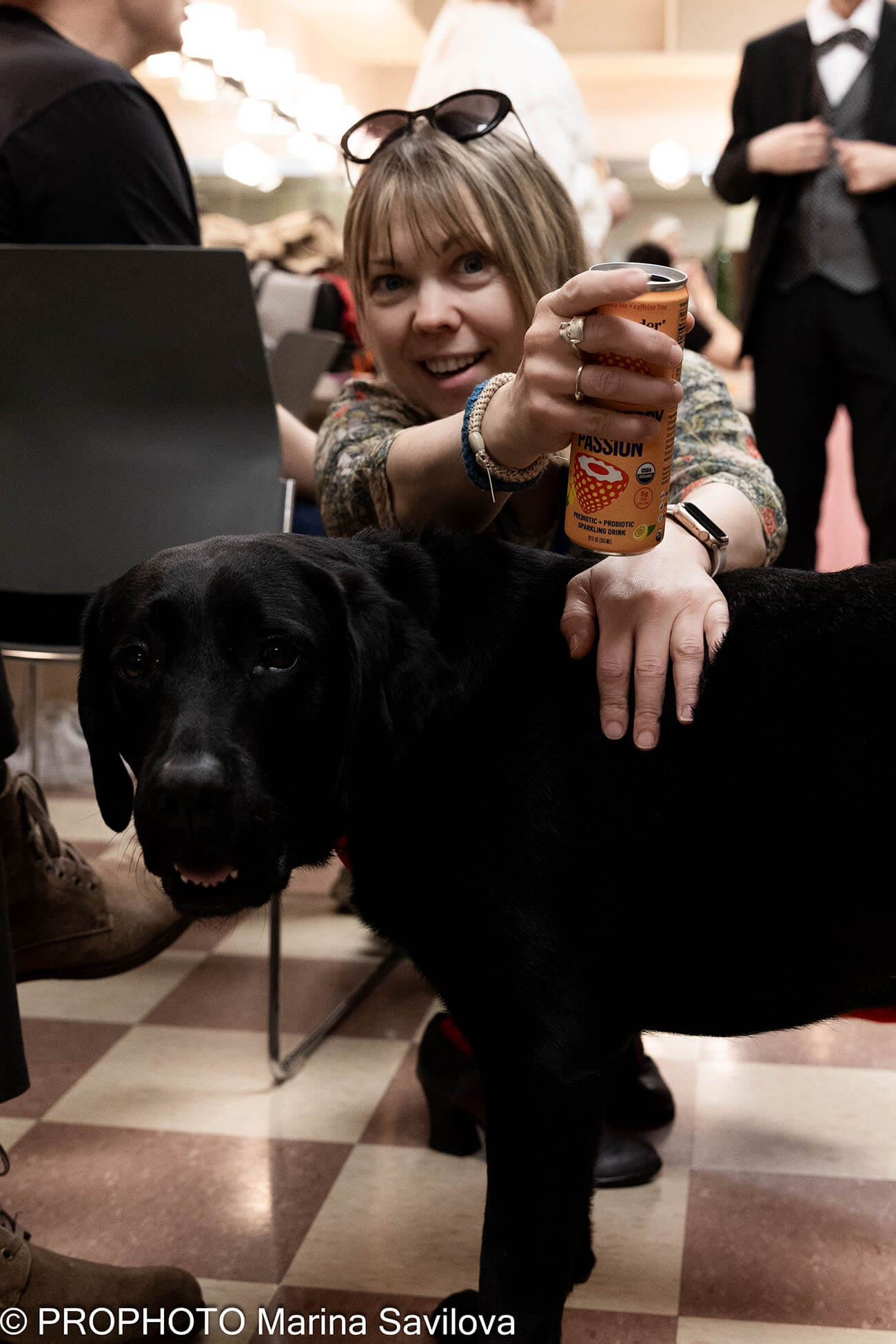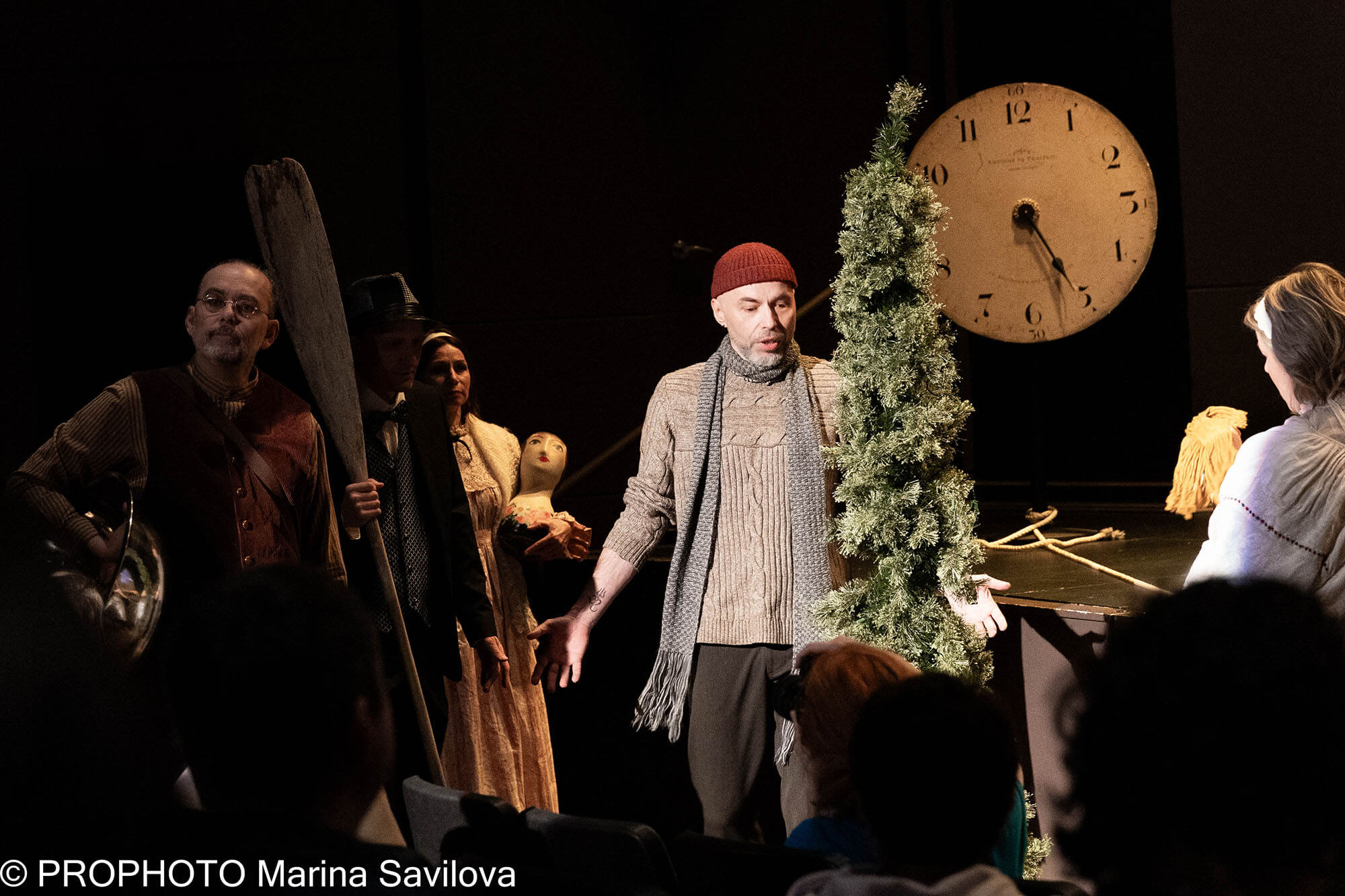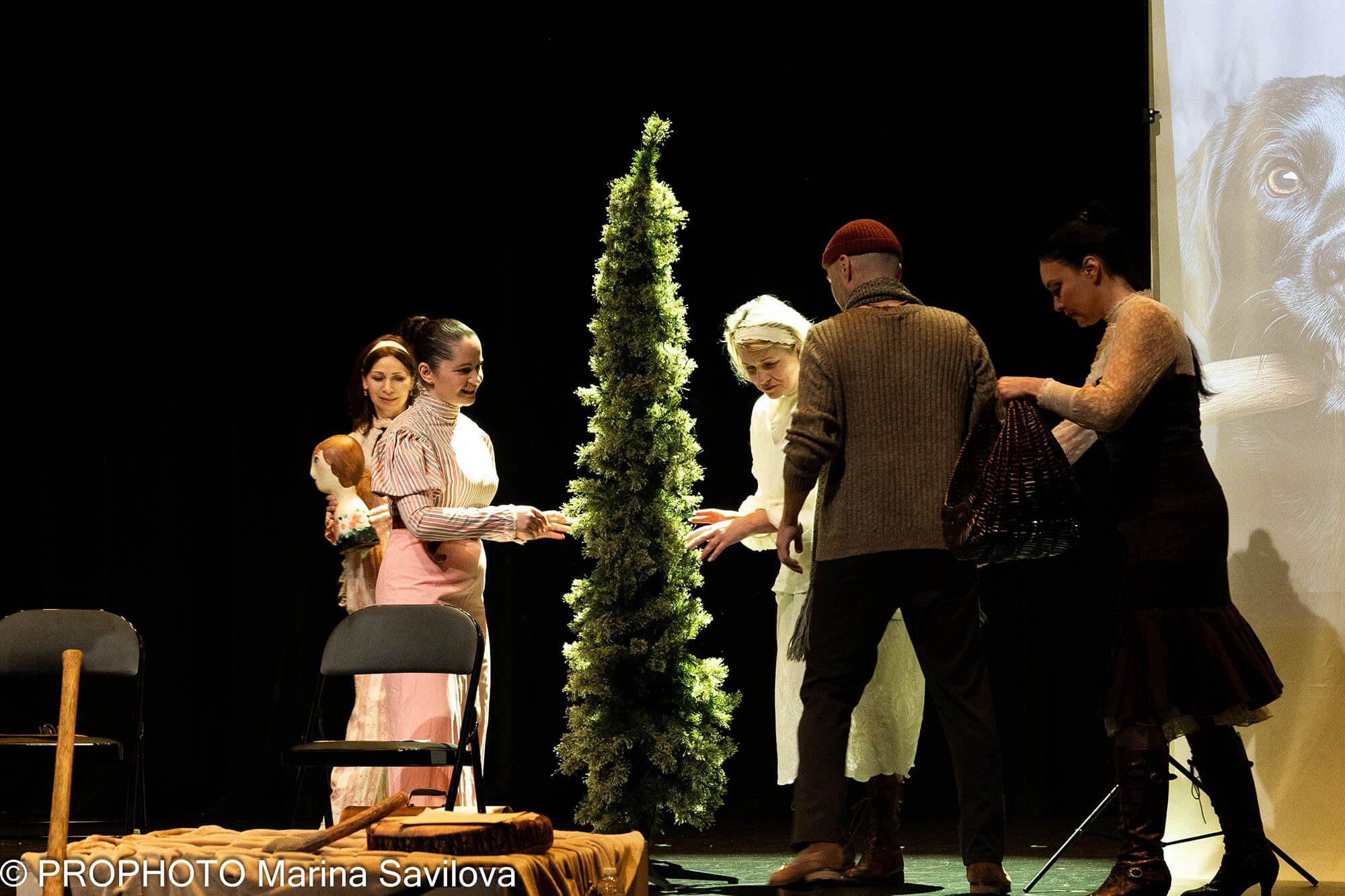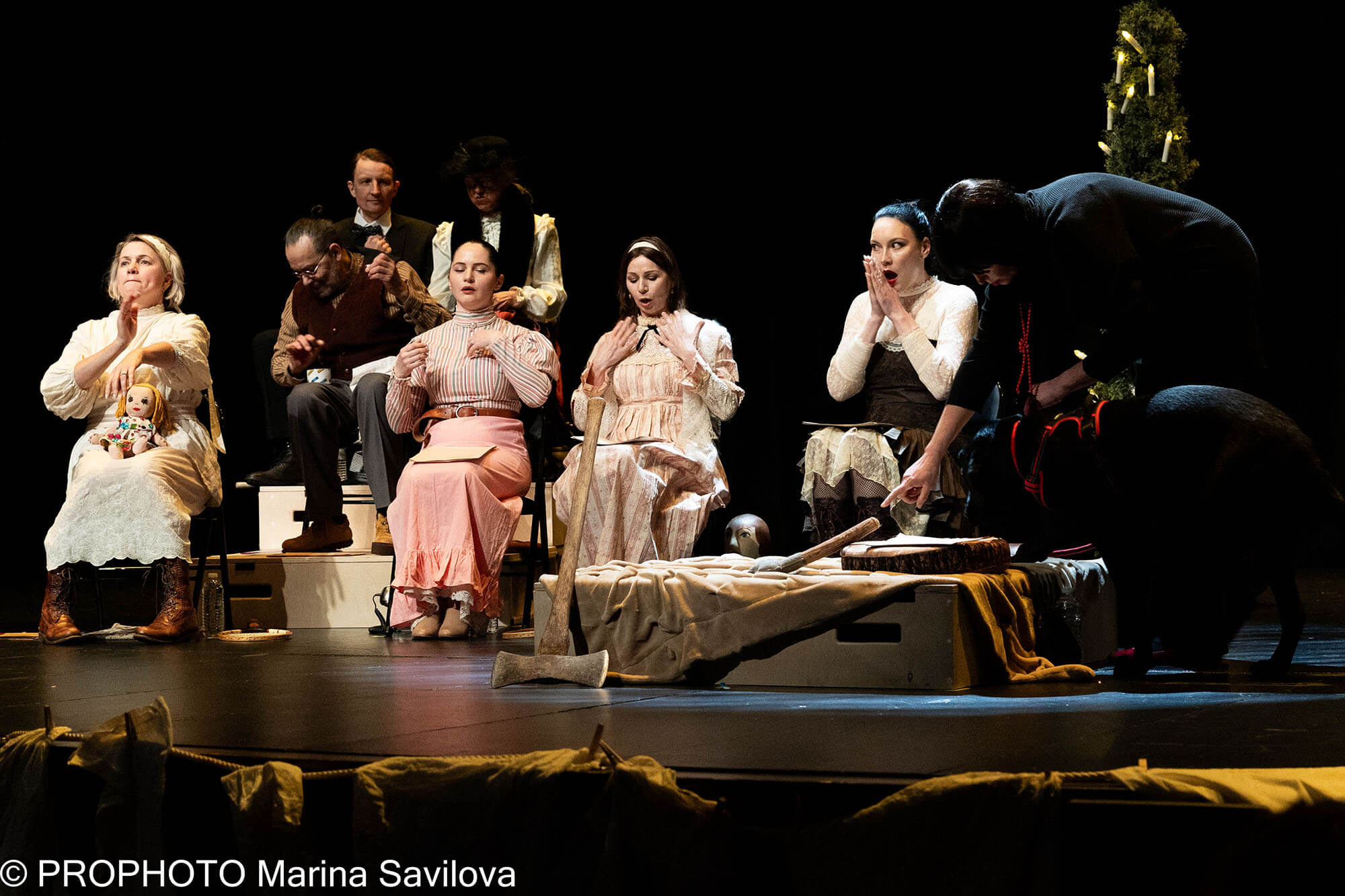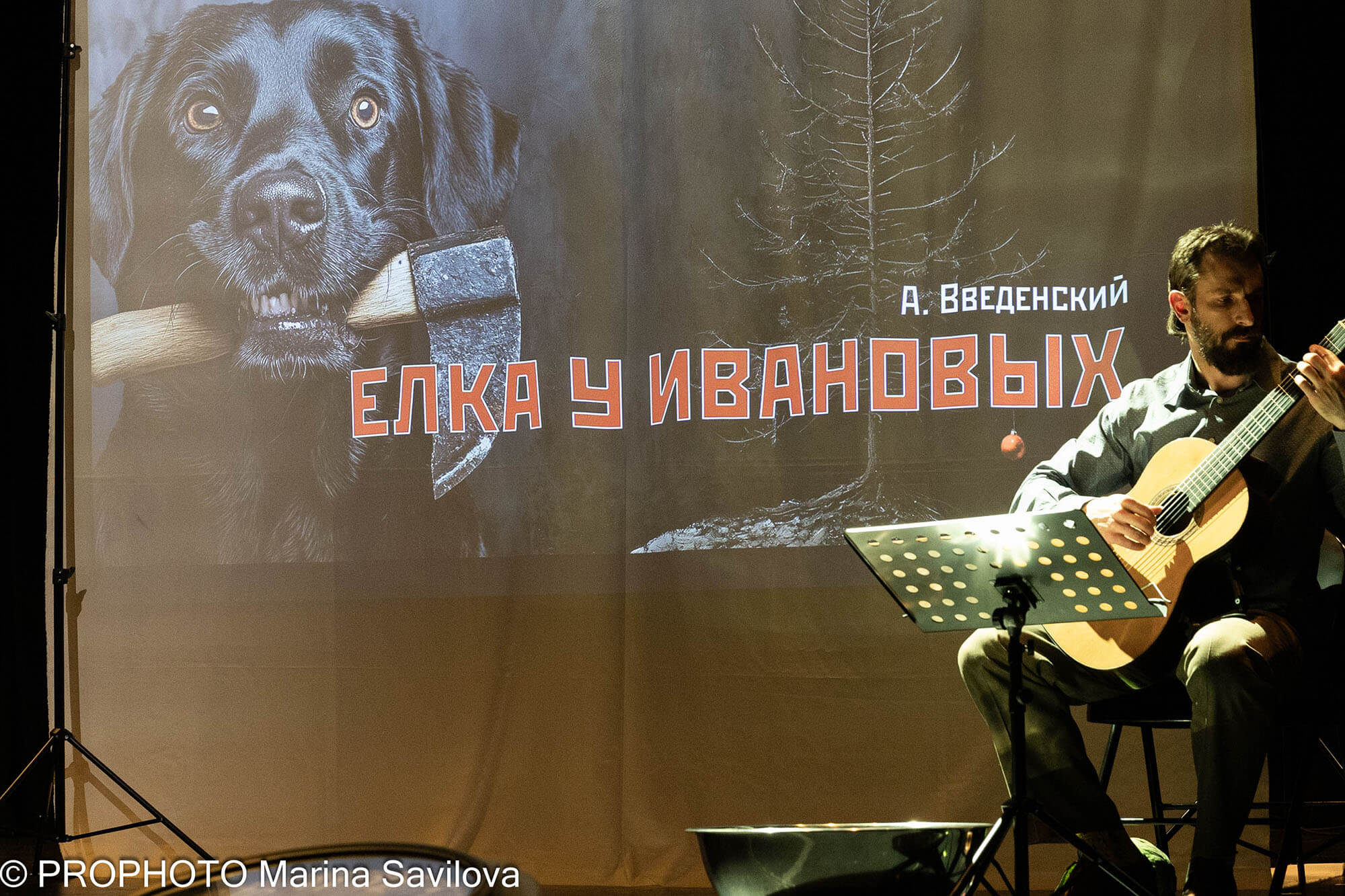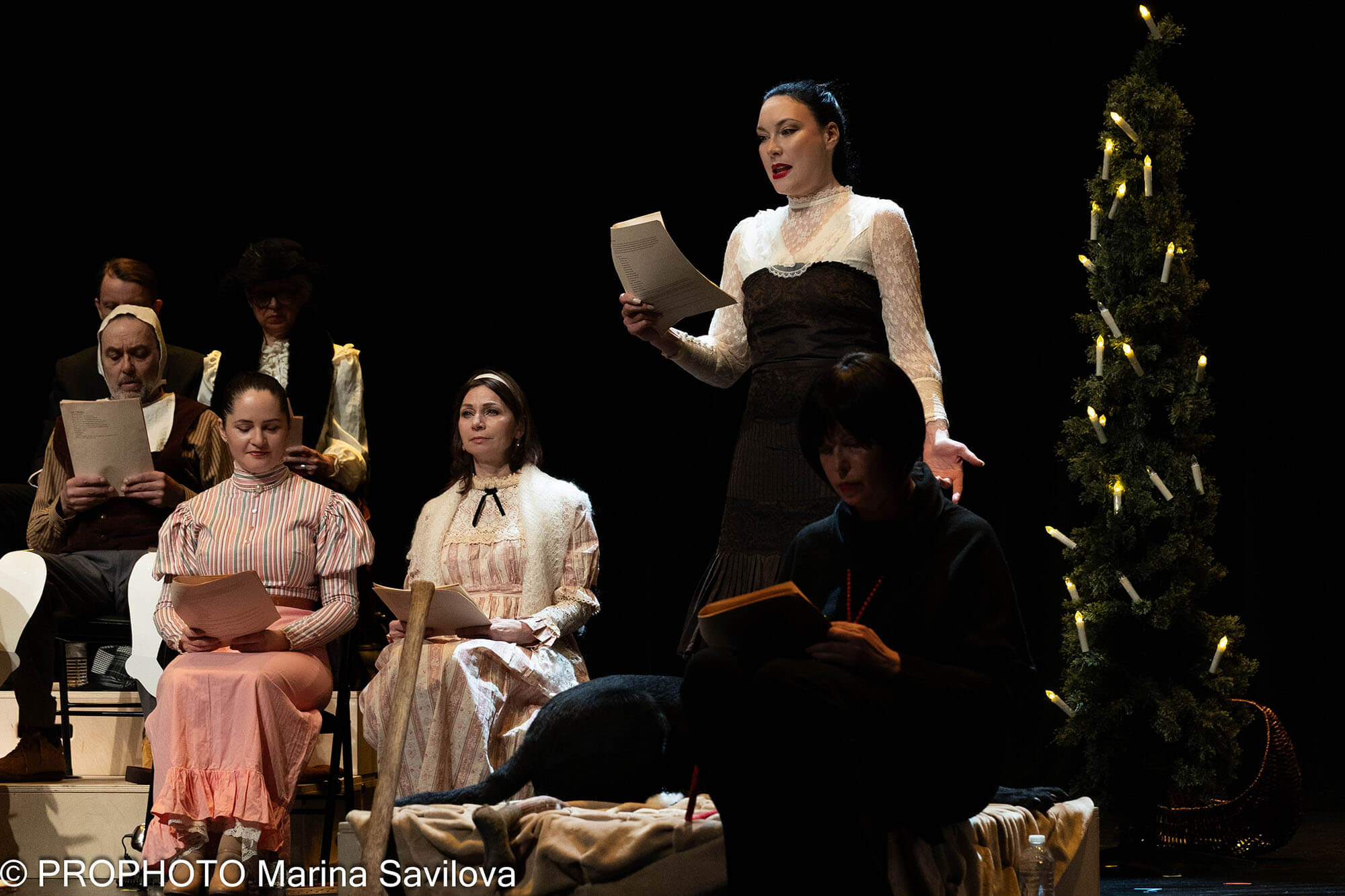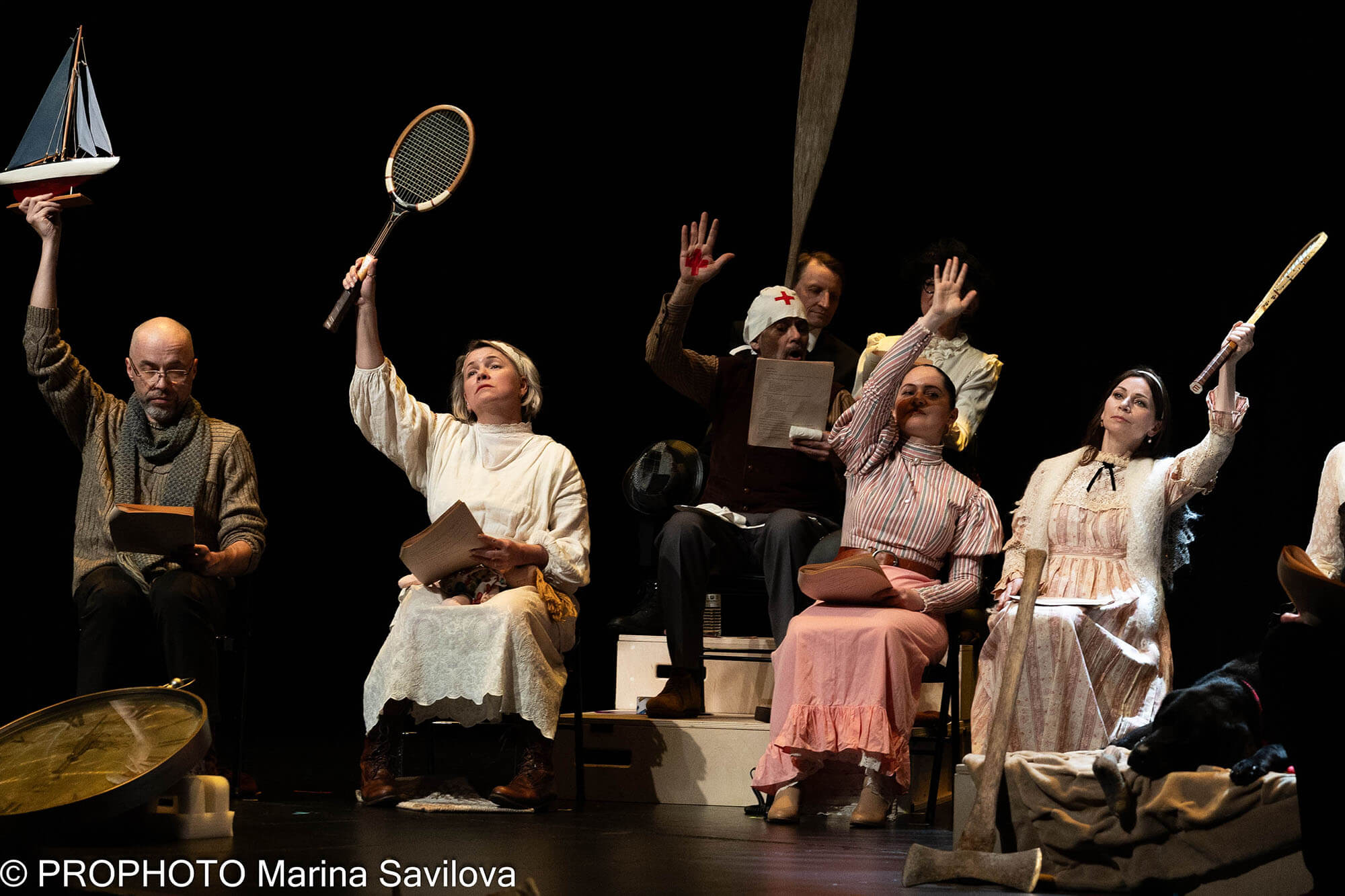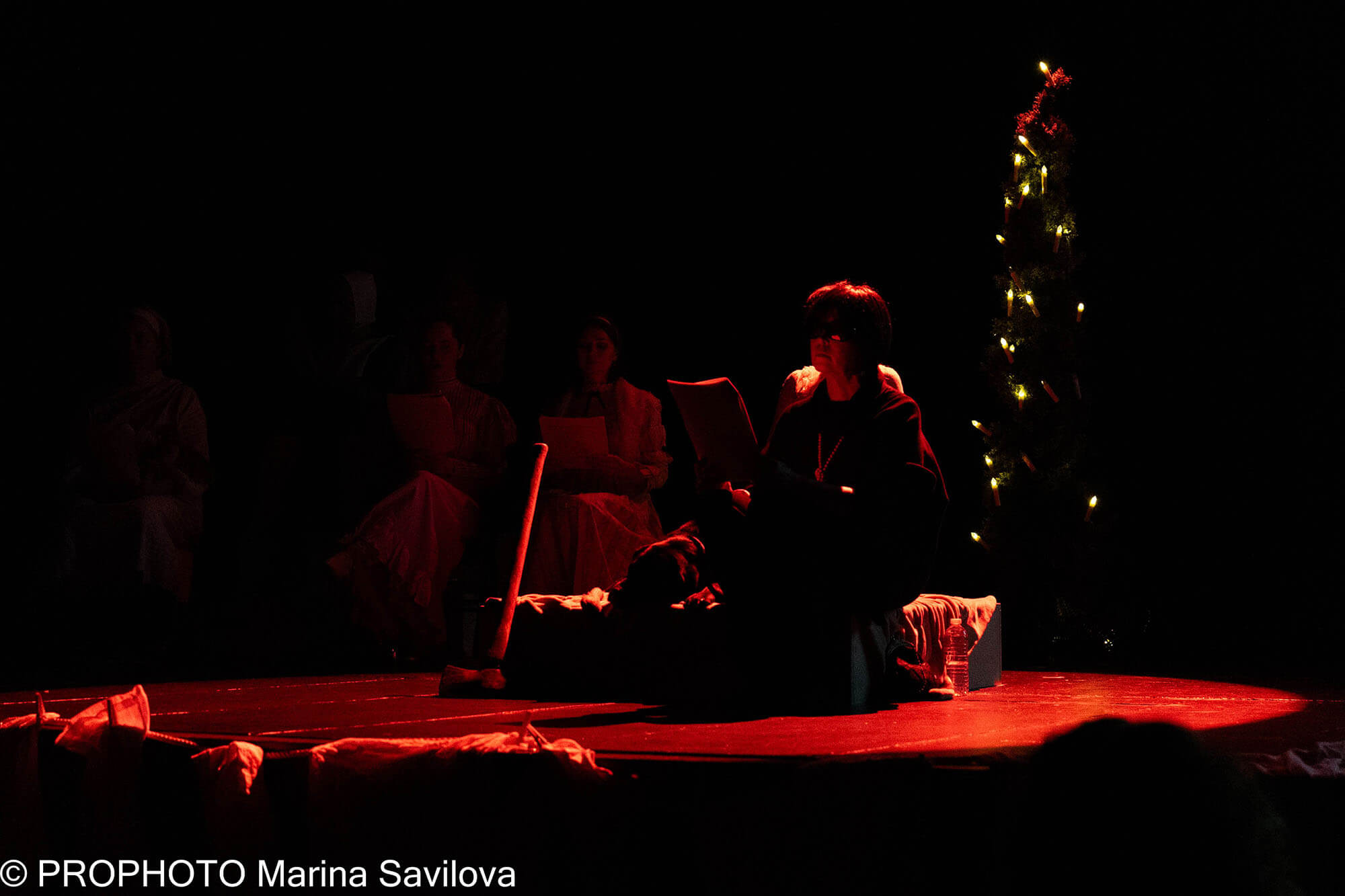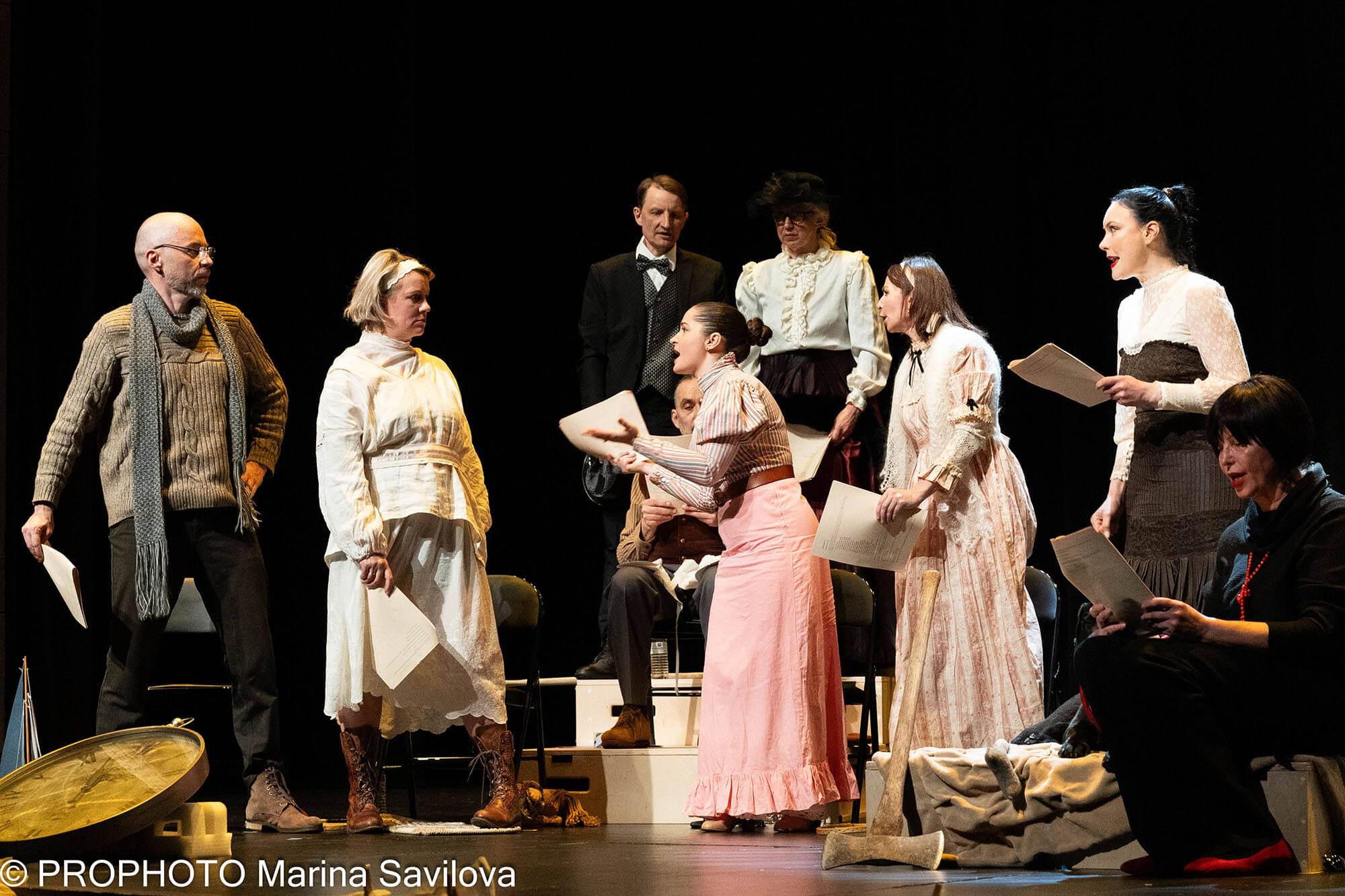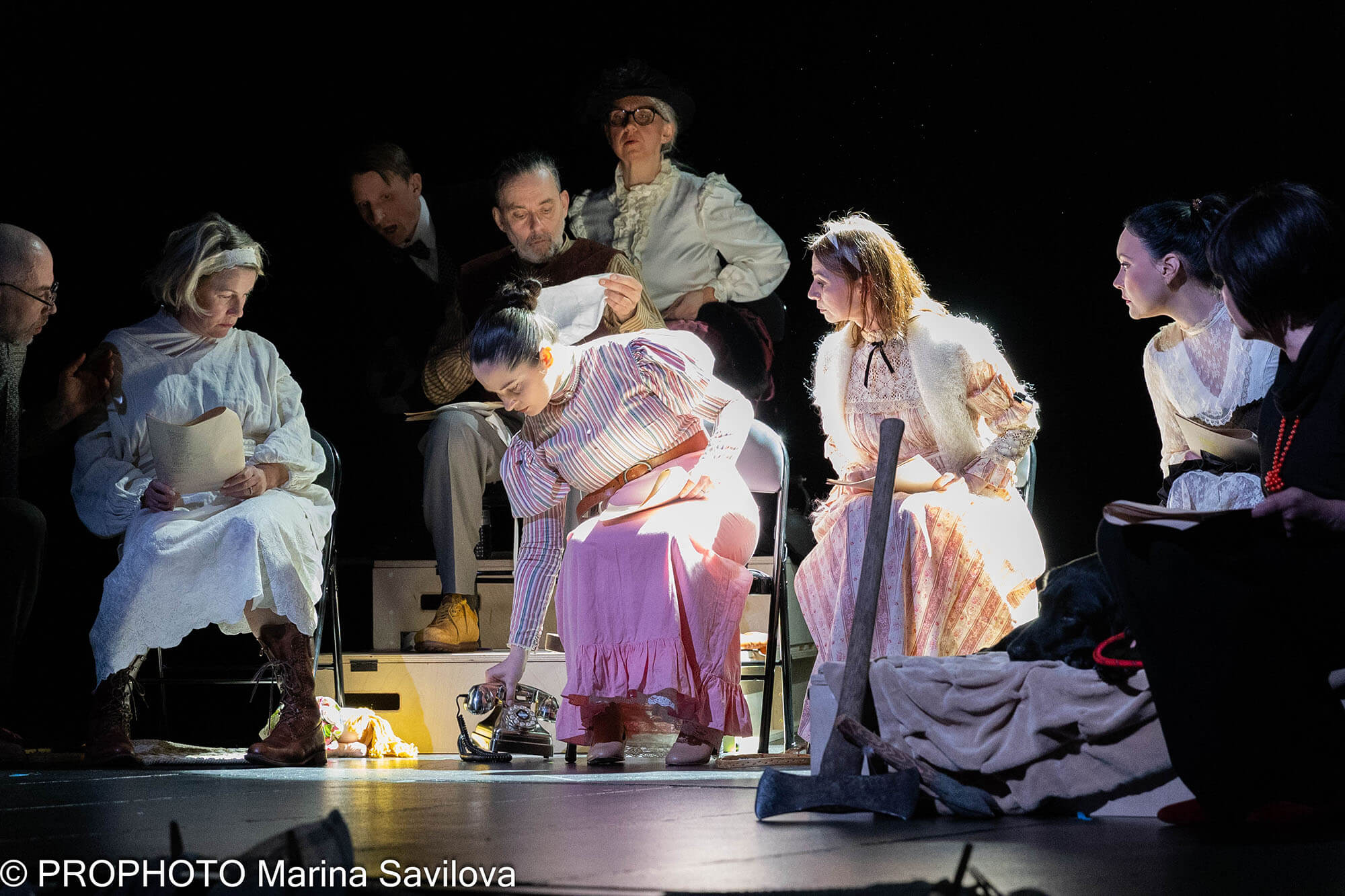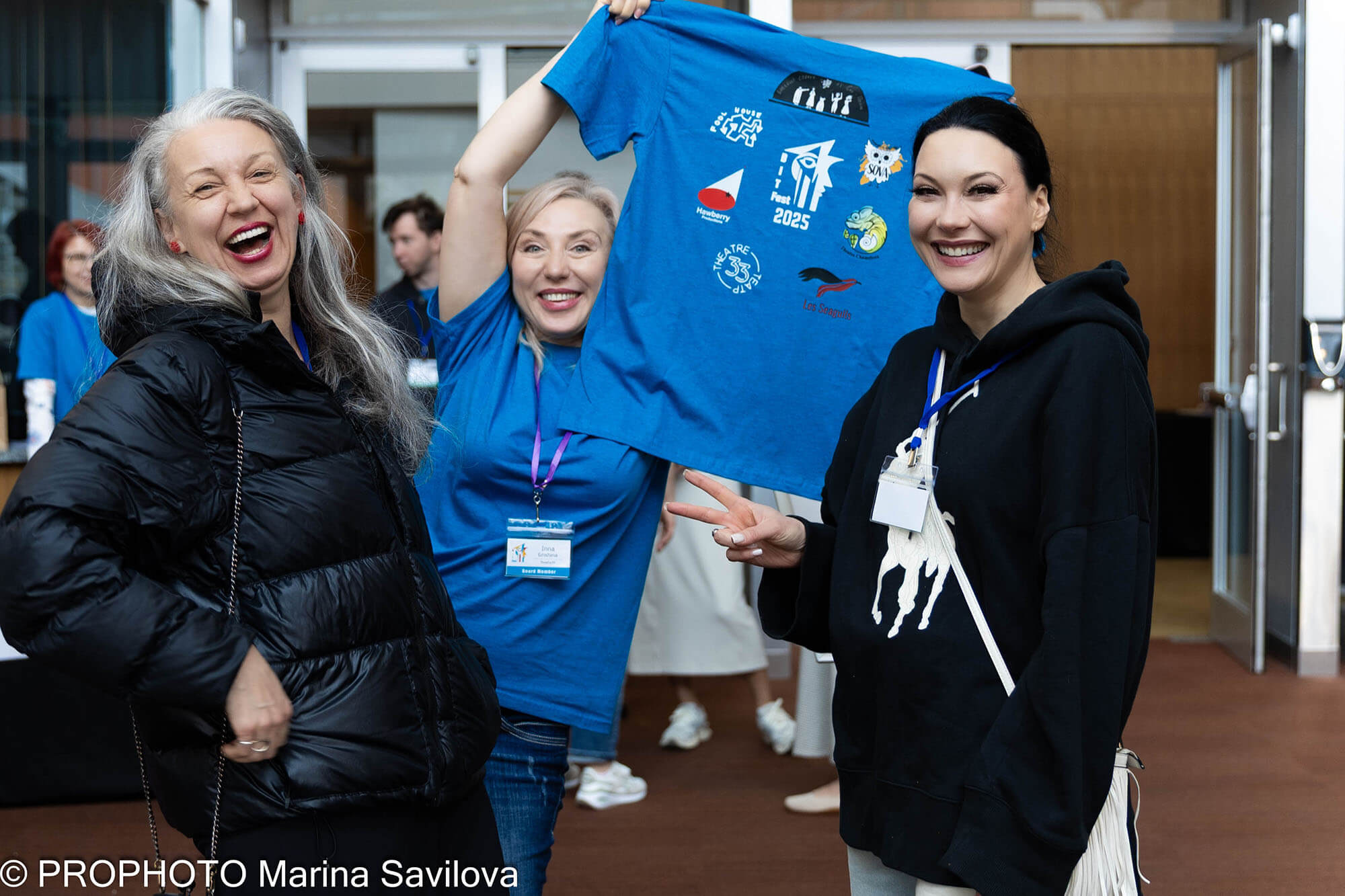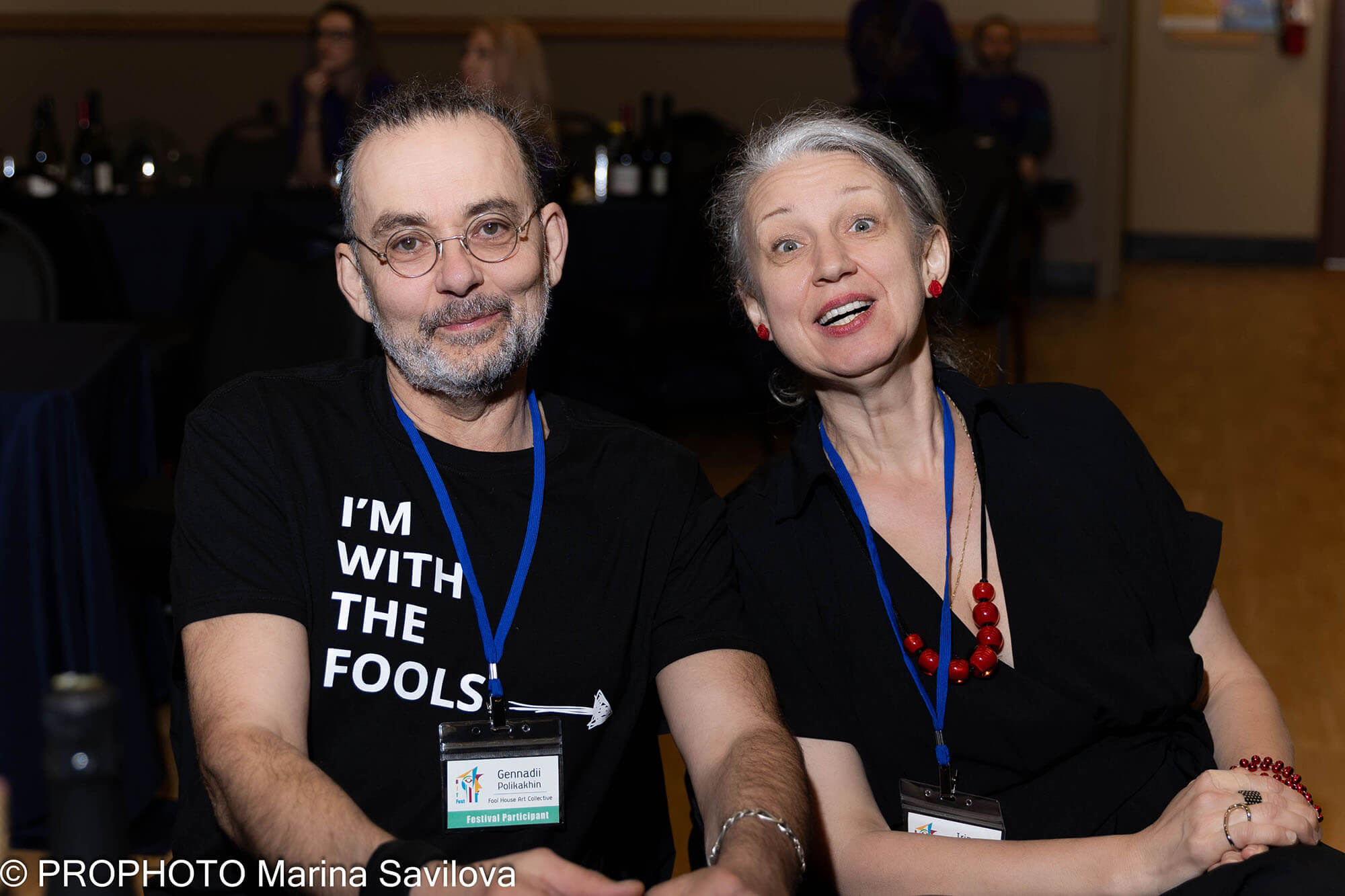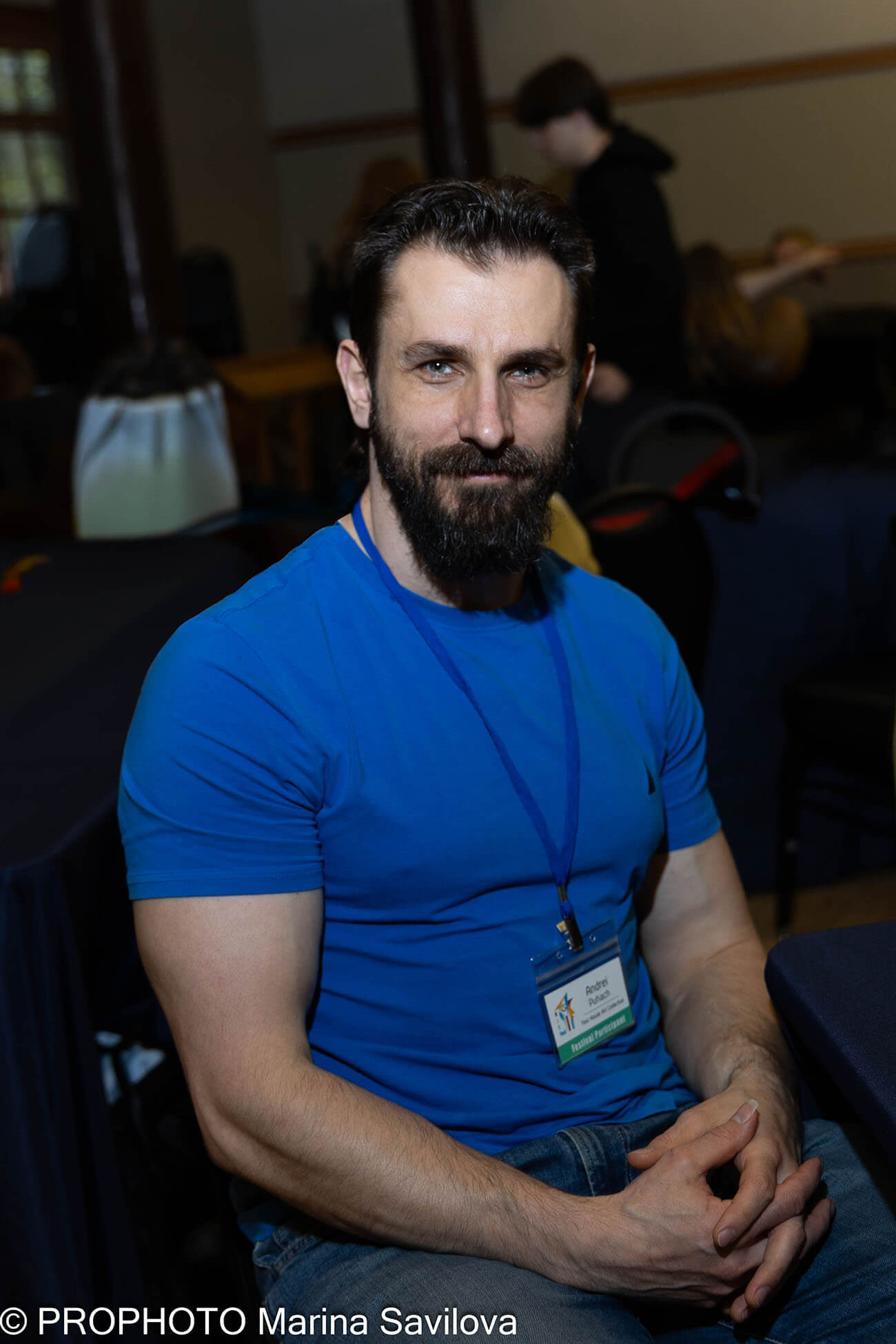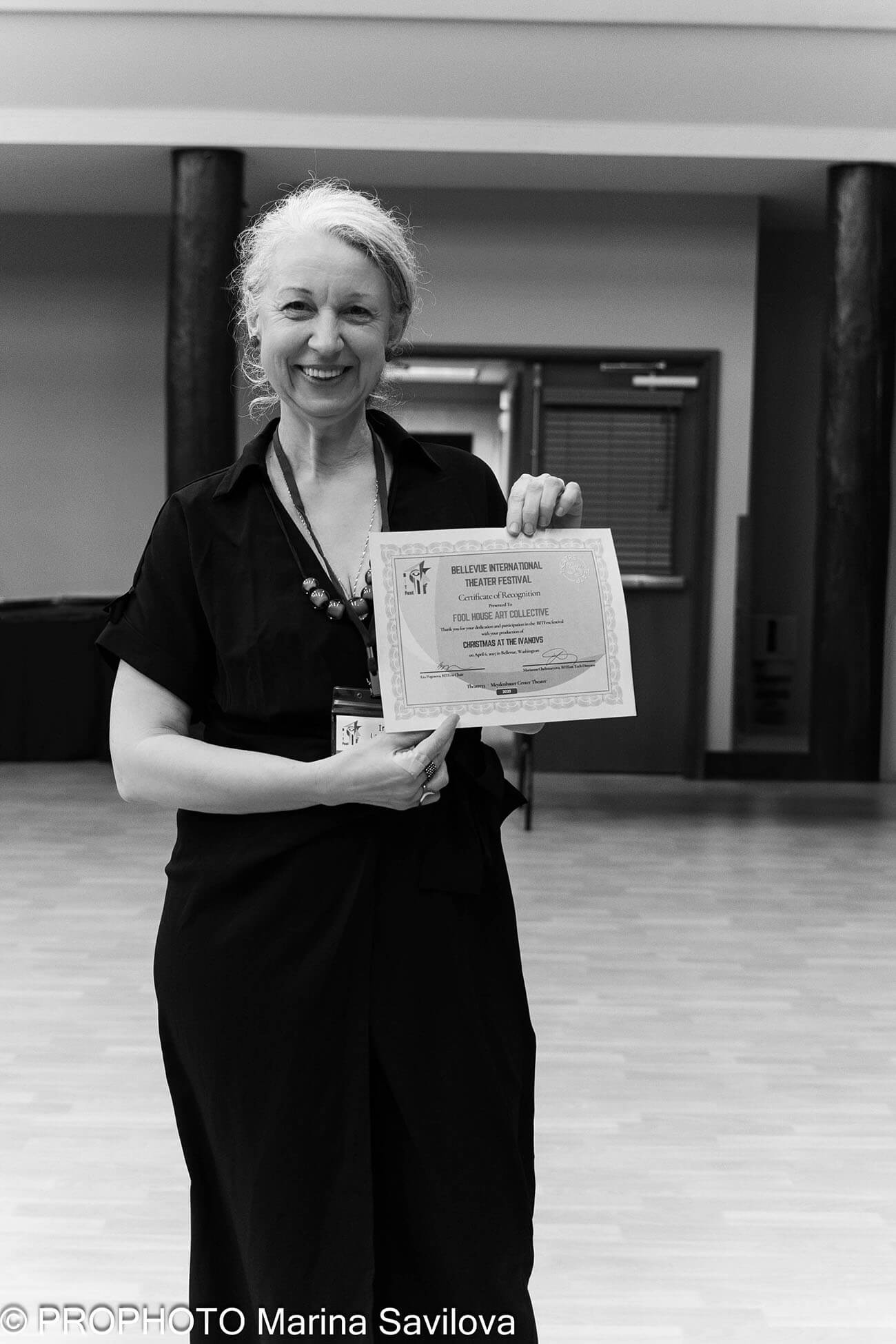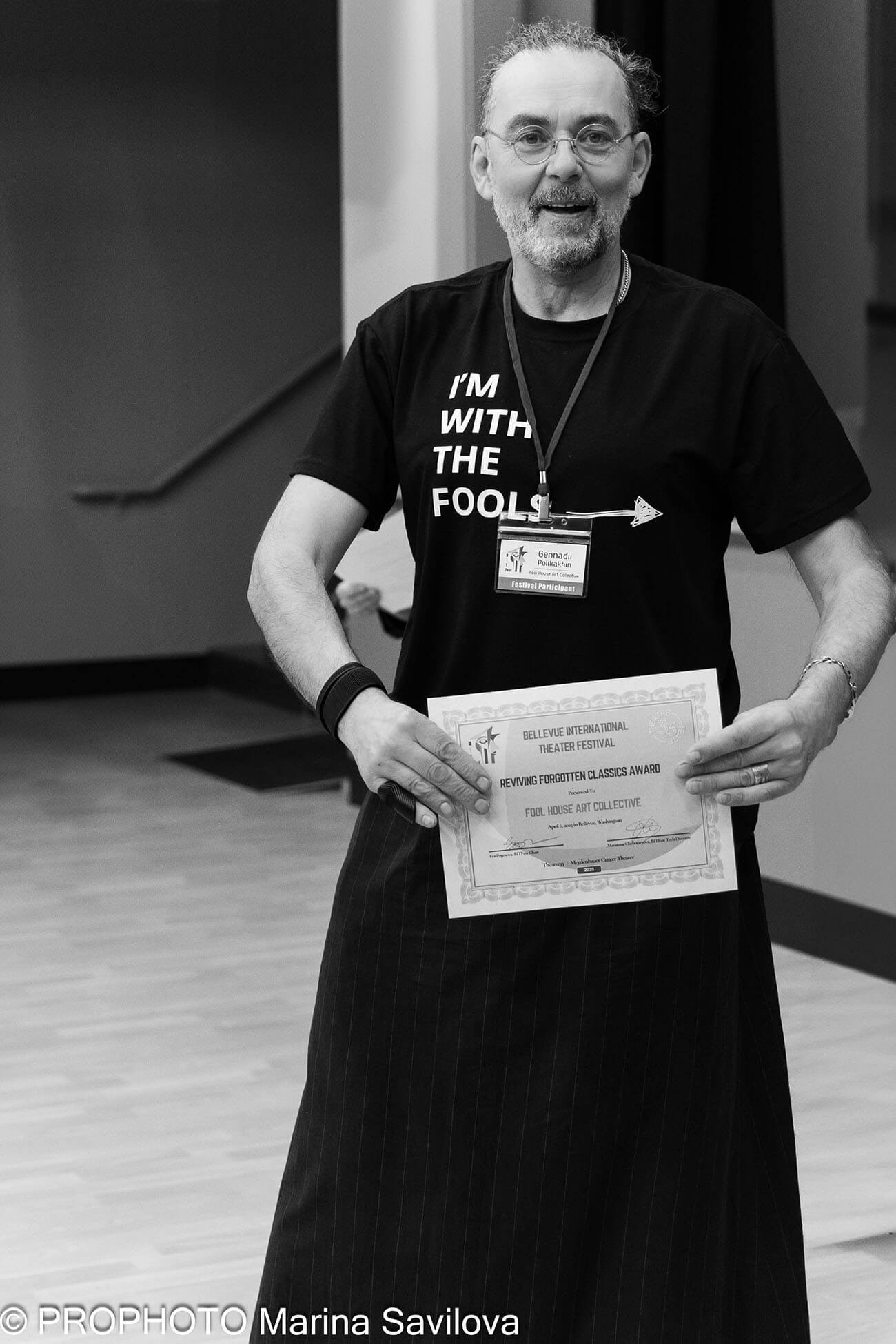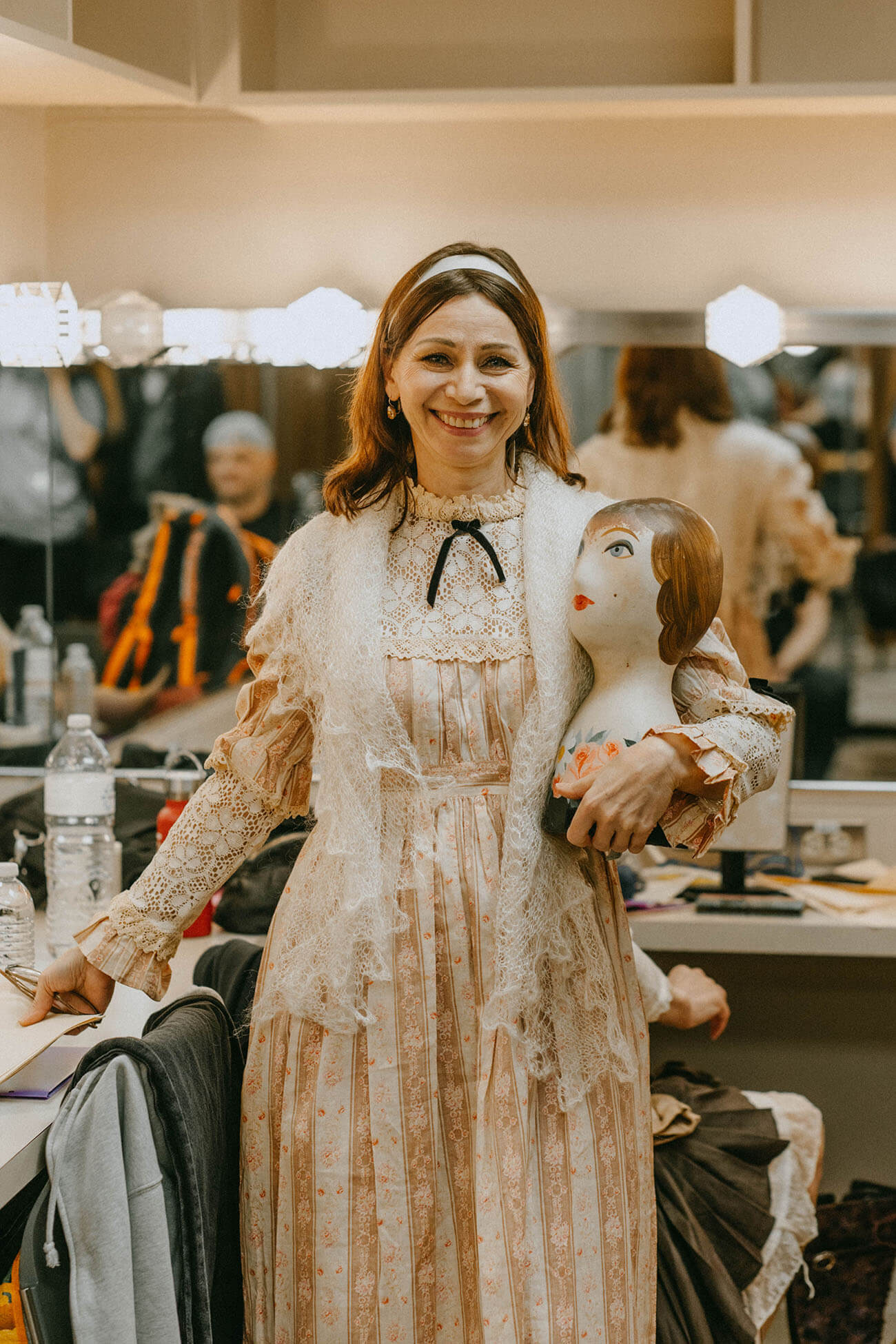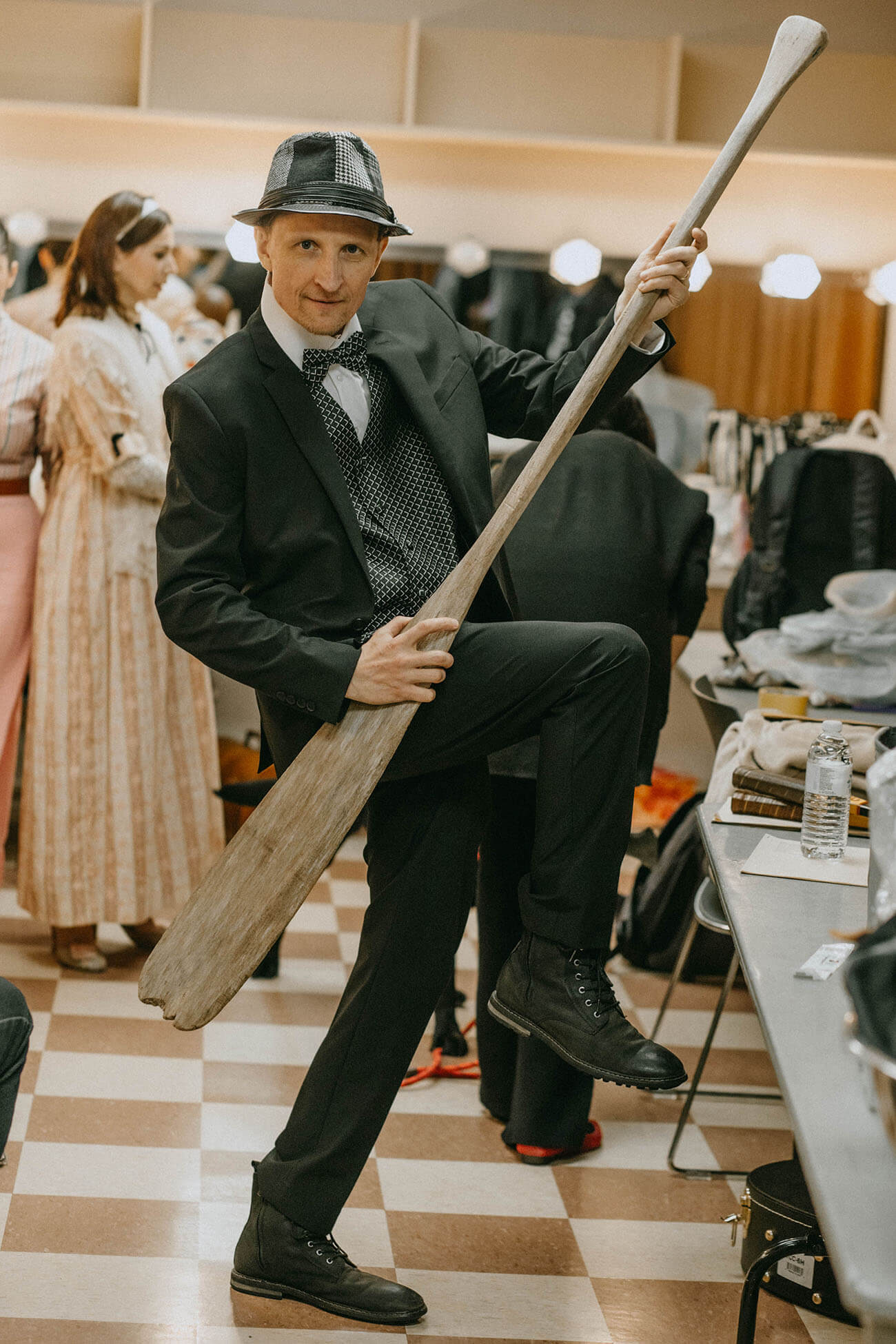CHRISTMAS AT THE IVANOVS
This is not a show about answers. It’s a show about being present, like music that doesn’t ask to be understood, only felt.
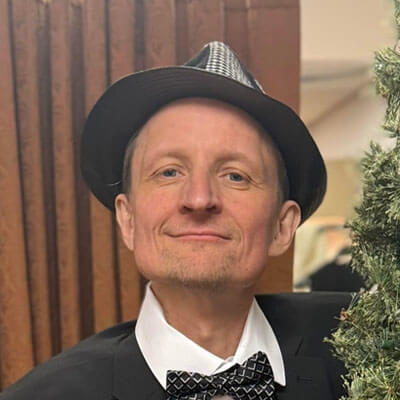
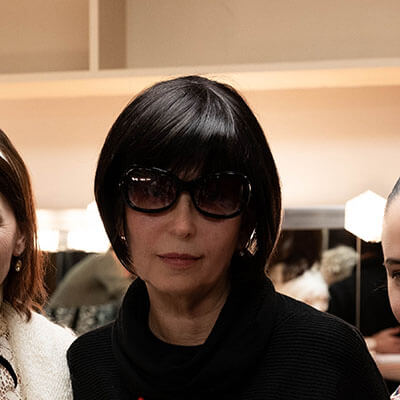
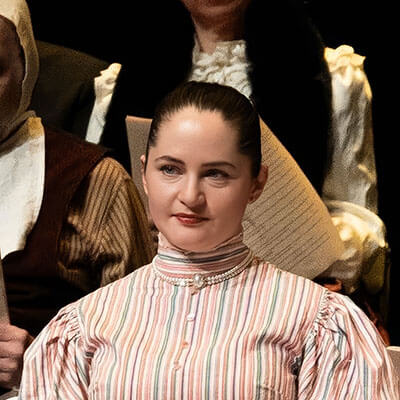
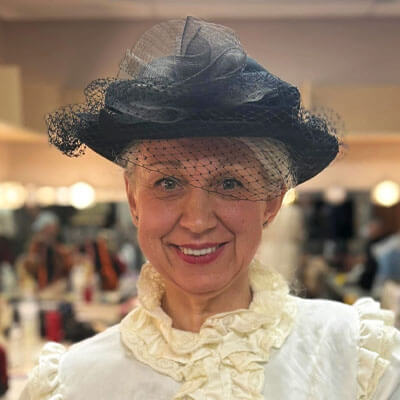
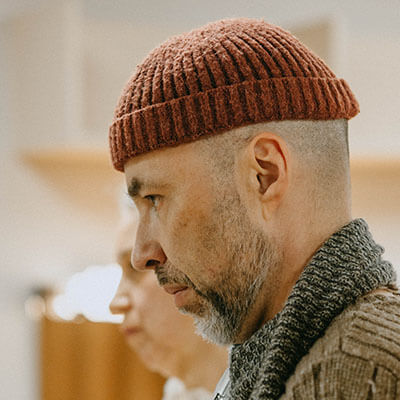
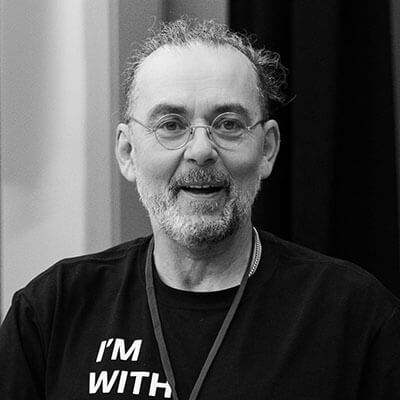
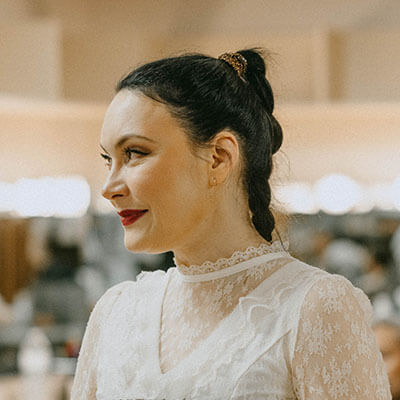
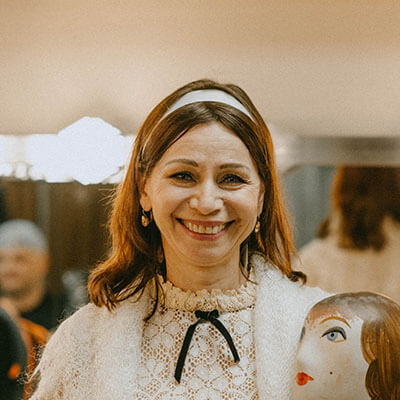
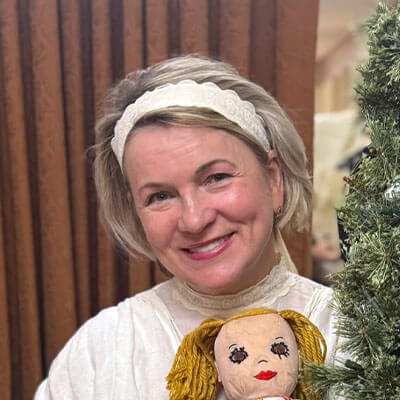
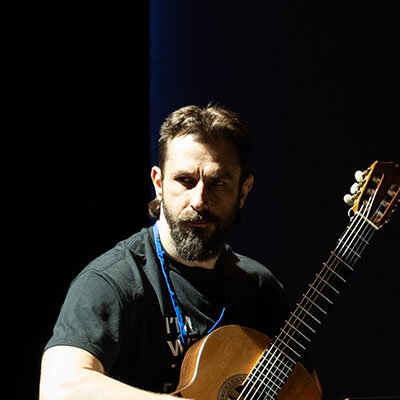
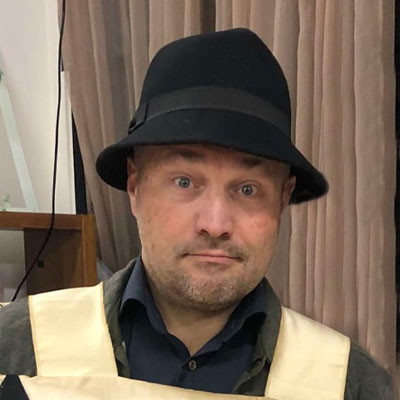
This time Fool House absolutely captivated me. I love Fool House for its scope, its courage, its openness, for the way it always pushes beyond boundaries, for its devotion to theater, for the mission it has taken on in our difficult world, and for the time it invests in each of us. Thanks to Fool House, things shift around us: old and new books are opened, art albums are revisited, texts are read and discussed, new acquaintances appear, new faces enter our lives, talents and abilities surface. Speaking for myself, my immigrant life has certainly become more interesting — a new thread has appeared in it, the thread of Fool House.
“The Ivanovs’ Christmas Tree” by Alexander Vvedensky. Normally, after a performance I always have something to say — here they fell just a little short, there they went a little overboard. I usually whisper these things only to Ira: because Ira always understands, she listens not only to me, and as a true professional she accepts criticism like an adult and grows from it. But this performative evening with Vvedensky was perfect. After it ended, I just wanted to go home and hold on to that feeling that arises when you encounter something real. That’s why I couldn’t bring myself to speak or join the discussion: I wanted to be without voices — only with music. Because the ending of the play was about the eternal, about what happens to all of us, and always happens alone. Well, perhaps that’s just my own quirk. Everyone found their own meaning in this difficult absurdist play — from direct references to the bloody events of the USSR to global human and personal themes. In this world, everything is interconnected, nothing disappears without a trace, the butterfly effect is everywhere: even the smallest action can have immense and unpredictable consequences. And so in The Ivanovs’ Christmas Tree a childish prank leads to a crime, then to punishment, and finally to the swift collapse of reality itself. Nobody lived “happily ever after” — in the end, everyone died on the same day.
As for the staging. Although it was announced as a reading, it was a full-fledged performance, and I cannot even imagine it being presented in another format. The images of the Ivanov family — absurd to the core, with mismatched surnames, children of illogical ages, a talking dog embodying faith, hope, and love, and an infant through whose mouth God speaks — were perfect. Every character found their actor. It is hard to picture anyone else in those roles, with a different face, voice, or body.
And the costumes! The stylization was exquisite, exactly how I love it: authentic — lace, hats, floor-length dresses, layered skirts, belts, ribbons, and the shoes! Just like in a museum. The costume of baby Petya magically turned him into a doctor from a psychiatric ward — a brilliant touch. Even the dog Vera and her speaking counterpart were a seamless whole: the black Vera with her red harness blended harmoniously with the reader in black, whose hair, sunglasses, and red shoes (matching Vera’s harness) highlighted this unity beautifully.
The severed head in the form of a cabbage rolling past my feet, the huge lumberjack’s axe — they added sharpness and absurdity to this revolutionary-for-its-time play. Just think what it contained — sex, cruelty, violence, foul language. Has anyone ever seen something like this in pre-Soviet or Soviet drama? Yet the magic of the text and the actors’ play carried all of this beyond the everyday, into some other realm — it called to something higher.
Thanks to the live guitar, to the quiet video sequence with 1930s footage and fragments from Alexander Fedulov’s mystery cartoon Father (created from Vvedensky’s text), thanks to the melodic voices of the actors (special thanks for this — the articulation work was excellent, bravo!) — the whole play was experienced like a musical performance. Perhaps that’s why in the end I longed for nothing but silence and music, as one by one the scripts fell to the floor… The absurdity and chaos ended, and calm arrived.
I want to especially thank everyone who created this project. This is my third favorite production staged by Fool House. It is a pity this was the last performance, otherwise I would have invited all my friends. I have no picture to share — because I didn’t take one. Everything remained in my mind — beautiful, and something “to think about for a long time.”
Tanya Maximova
